WOMEN ON THE FRONTLINE
A celebration of power in partnership with

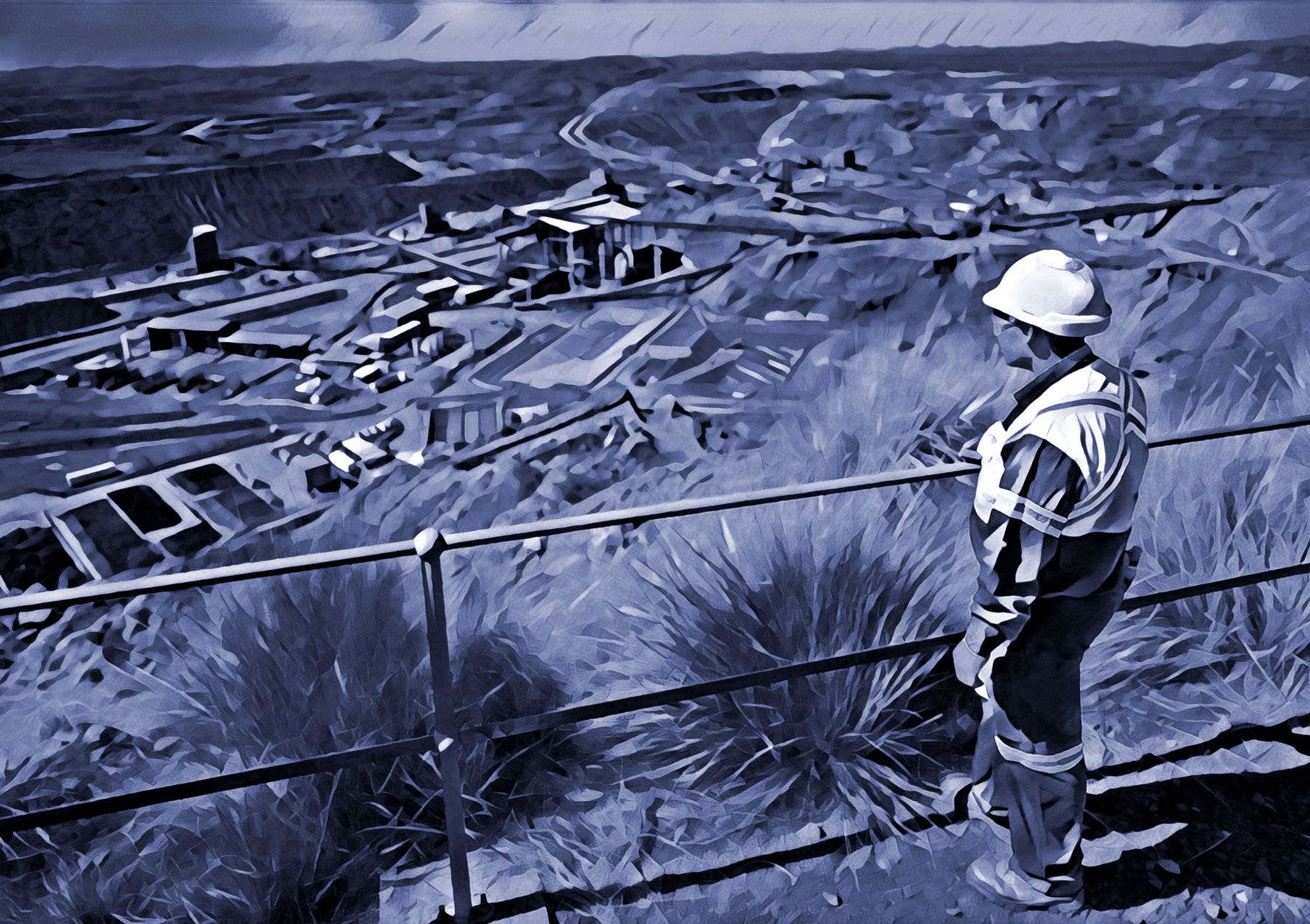
Advancing equality beyond Women’s Month
By Nolitha Fakude
As Women’s Month comes to a close, it is important to reflect on how we will continue to celebrate the powerful stories and the important roles women play in society – whatever occupation they may have and wherever they may be from.
Beyond the month of August, it will be important for us to continue to acknowledge the work done by women to achieve their goals and aspirations.
We also all need to focus on the imperative for men to play their part in not only creating a more enabling environment, but also one that champions equality and dignity. The extent of this is far-reaching and goes beyond the workplace; it stretches into our homes, where men, as equal partners, need to take on their share of responsibility.
As Ban Ki-moon, the former secretary-general of the UN, has said: “Achieving gender equality requires the engagement of women and men, girls and boys. It is everyone’s responsibility.”
Over the past three weeks, 10 women from across Anglo American have shared their stories of power. However, they have also outlined challenges for their communities, as well as for society as a whole, highlighting not only areas of concern and urgency, but of celebration too.
Occupational medical practitioner at Anglo American’s Kolomela mine in Postmansburg, Dr Mapitso Bontle Bonokwane-Motsepa, raised the spectre of gender-based violence in her interview, reminding us all of what it will take to end it. “Together, we can beat gender-based violence, but our men must take the lead.”
Elizna Hovy, an acting section engineer in the treatment plant of Anglo American’s Venetia mine in Limpopo, noted that women don’t need to change to take up the space they are due in the workplace. “Keep those qualities that make you a woman – they are what make you special and add a different, and often necessary, dimension to any profession.”
Head of legal for Anglo American in South Africa, Fiona Edmundson, celebrated the correction in the delegation of roles in the home and workplace that shows the progress – albeit slow – towards gender equality. “Lockdown has seen both genders working from home, and this has resulted in more ‘sharing of the load’ in terms of home, schooling, childcare and other household activities. I hope that we retain this balance. Obviously, the #MeToo movement has been significant across the world in recent years.”
Nandipha Matiwane, an occupational health nurse based at Anglo American’s corporate office in Johannesburg, who is featured today, sets out what should be our collective goal. “My ideal world is when my grandchildren don’t know anything about gender inequality because they haven’t seen or experienced it.”
The women who marched in 1956 did so for their rights and for future generations to show others how to shift injustice collectively. Anglo American strives to ensure that we create platforms on which women can thrive and live to their fullest potential.
Michelle Obama said it best: “When you’ve worked hard and done well and walked through that doorway of opportunity; you do not slam it shut behind you.”
Indeed, we must all – women, men, companies and governments – stand together on the front line to create equality in the future through our actions each day.
Fakude is the chair of Anglo American’s management board in South Africa
POWER
‘The capacity to influence the behaviour of others or the course of events'
FOREWORD
On this day 64 years ago, thousands of women from across South Africa used their collective power for good. Every year since, we reflect on and celebrate how those 20 000 women marched us closer to achieving gender equality, and Women’s Month helps us interrogate what more needs to be done.
South African women from every race and class gathered at the Union Buildings in Pretoria with signed petitions to protest the apartheid government’s pass laws. The 30-minute silent protest was a warning to government; a powerful signal that the women they sought to marginalise and erase would be seen and heard on their own terms.
This year, to commemorate this important milestone and the power of women, Anglo American, in partnership with City Press and Daily Sun, is celebrating women from across the company’s operations.
Women on the Frontline will feature 10 women who work for Anglo American in very different capacities, and form an important part of the company’s success and continued resilience in the face of the Covid-19 pandemic.
Our commitment to gender equality and the progression of women in the workplace goes beyond talk. We have seen a significant increase in the representation of women at management level across Anglo American’s South African operations. In 2018, 27% of management in the company comprised of women, and this increased to 35% last year. Similarly, women employed in core functions significantly increased from 16% in 2018 to 28% last year.
Over the next four weeks, City Press and Daily Sun will feature these women’s personal stories within the context of their professional lives and within the historical context of Women’s Day. The series also invites their reflections on the challenges of gender equality in their experience, and how a “black swan” event such as the Covid-19 pandemic offers an opportunity to reshape our future.
Facebook’s chief operating officer Sheryl Sandberg reminds us: “In the future, there will be no female leaders. There will just be leaders.” That future is now!
Join us for this celebration of the women who are leaving their mark on the frontline of the pandemic.
Malibongwe igama lamaKhosikazi!
- Nolitha Fakude, Chairperson of Anglo American's Management Board in South Africa
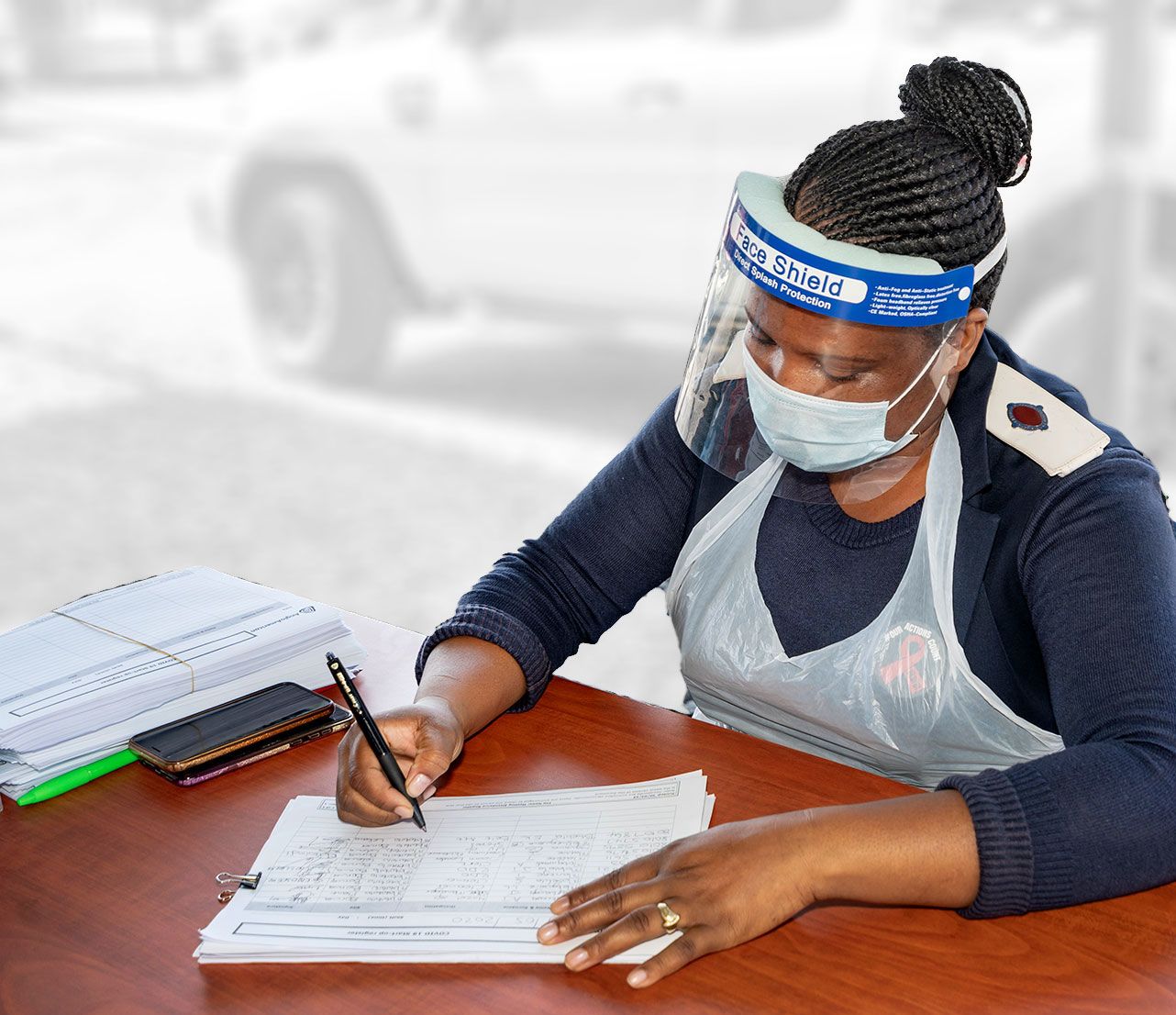
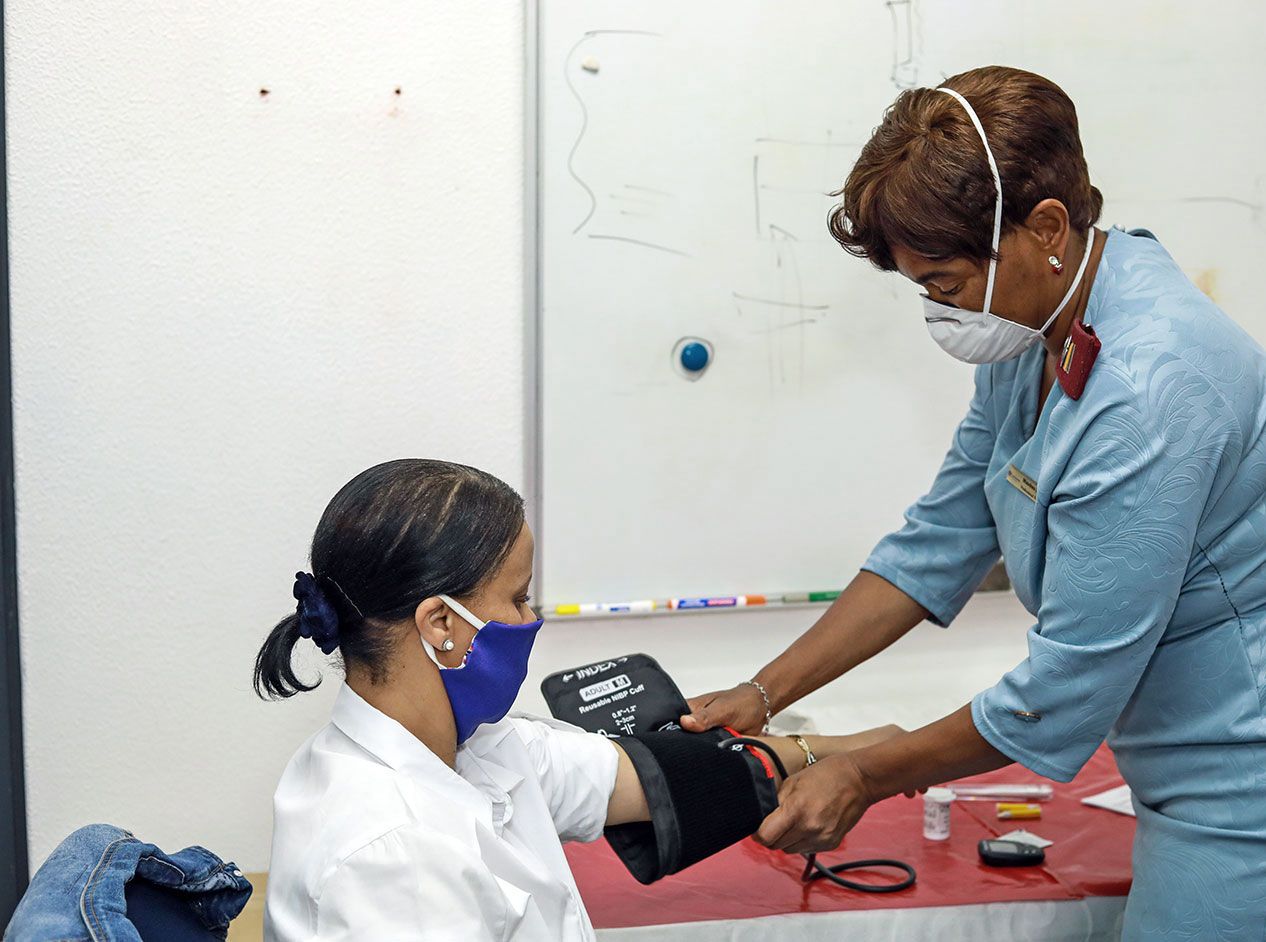
Women on the frontline
Nandipha Matiwane
Nandipha Matiwane is an occupational health nurse based at Anglo American’s head office in Johannesburg. Her duties range from managing medical emergencies and injuries, to promoting employee wellness and managing acute healthcare issues. She is also the lead nurse in Covid-19 case management for the company. She is inspired in her career by her father, a former mine worker in the goldmines in Welkom.
Do unto others as you would like them to do unto you or your loved ones
What does your job entail?
As an occupational health nurse, my duties include doing fitness medicals for employees, managing injury-on-duty cases, providing nursing care to employees who fall sick at work and performing wellness screenings. This includes promoting HIV testing.
What personal experience was the catalyst for you finding yourself where you are today?
My father worked in the Welkom mines and he used to talk about going for medicals to check his hearing as it was deteriorating, as well as having other physical assessments done at their work clinic. I liked the idea of taking care of the human resources and the promotion of wellness by the employer. This influenced my choice of career – nursing.
South Africa, and the world, is in the grip of a deadly pandemic, how have you tapped into your personal power to more than survive – but to thrive – during this unprecedented time in history?
As Covid-19 started, I really wanted to be out there helping those infected or affected by the virus. This pandemic gave me the opportunity to implement what nursing is all about – care and support. I also see this time as an opportunity to learn as much as I can and to challenge myself to do more.
In 1956, a show of women’s power was part of the change in South Africa. For you, what is the most significant shift towards gender equality in recent years and what more needs to be done?
Having more women in powerful positions in society and making a huge impact where they are shows we have come a long way. I would like gender equality to be emphasised from an early age in households and communities so that our girls don’t feel less equal and boys feel all-powerful. My baby girls don’t have to deal with the emotional trauma of being made to feel incapable or inferior just because you are a woman. My ideal world is when my grandchildren don’t know anything about gender inequality because they haven’t seen or experienced it.
What, for you, is the single biggest challenge women face in this country and worldwide?
Safety for us women and children is a big challenge. We are still in an age where women feel they need to be protected from men. We would like to walk around and work freely without fear of being harassed or killed.
What would your best piece of advice be for the next generation of women entering your professional space?
Do unto others as you would like them to do unto you or your loved ones. Care is the cornerstone of nursing. And be professional at all times.
What is your favourite way of unwinding after a day at the office?
Spending time with my family chatting about everything except work and school really helps me.
When you have time to read, what do you love to read?
I read a lot of self-help and motivational books.
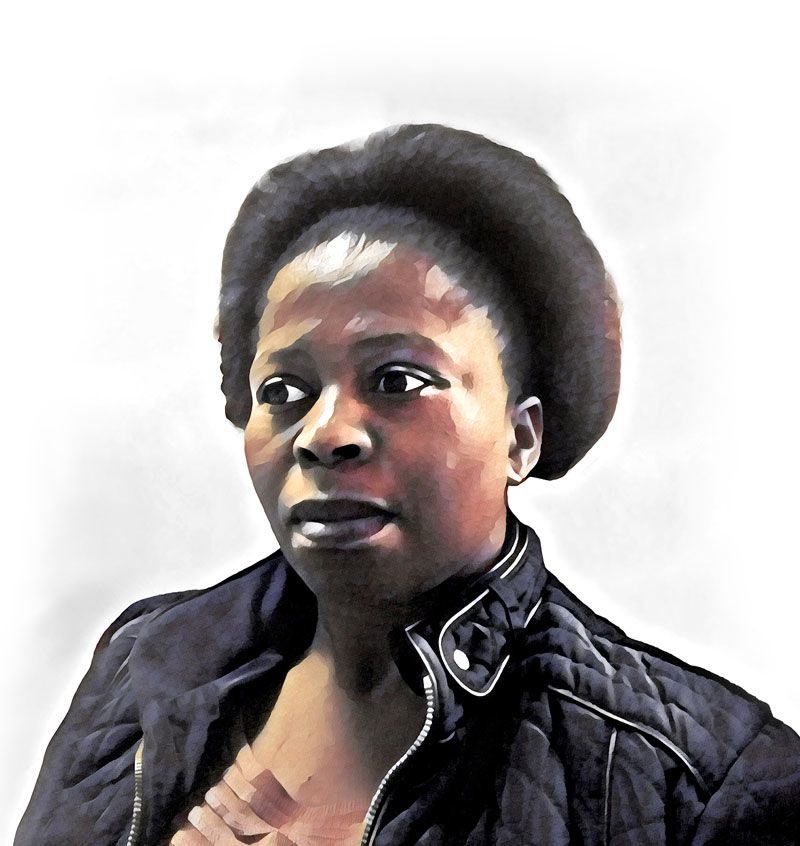
Nandipha Matiwane
Nandipha Matiwane
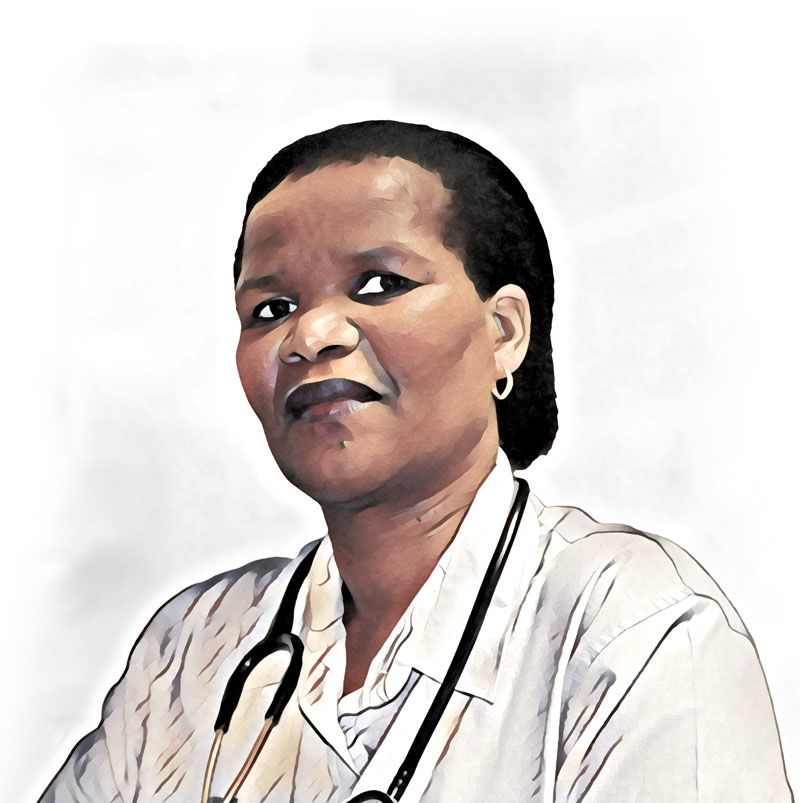
Dr Ntomboxolo Dudumayo
Dr Ntomboxolo Dudumayo
Dr Ntomboxolo Dudumayo
Dr Ntomboxolo Dudumayo began her career in the Eastern Cape as a maths and science teacher. She subsequently trained as a medical doctor at Medunsa and obtained her medical degree in 1993. She worked as a private general practitioner for seven years before joining the mining industry in 2003, where she worked as an occupational medical practitioner and pioneered an HIV management programme in at Lonmin Platinum mine.
Dudumayo then joined Anglo American’s Kolomela mine in the Northern Cape, where she worked as an occupational medical practitioner, and manager of the health services and the fatigue centre. She is now the chief operating officer of Pholamed Occupational Health and Wellness.
What does your job entail on a daily basis?
My daily job is to oversee the mine operations, as well as ensure legal compliance for both Kumba head office’s occupational centre and Kolomela mine’s occupational centre. I also offer support to the teams that are responsible for medical surveillance and wellness programmes.
What personal experience was the catalyst for you finding yourself where you are today?
I have always wanted to be a doctor, but also to specialise in a specific field – I wanted to be a specialist physician. After realising that I would not specialise, I discovered that occupational medicine was an option. When I started as an occupational medical doctor, I soon realised there was a lot I could do to improve the wellbeing of the workers.
The health and wellbeing of the workers is fully dependent on the healthcare practitioners who work on the mines. I have to be the workers’ voice and health advocate to their employees when their health is in danger.
Most mine workers were not aware of their health and safety rights as contained in the acts.
South Africa, and the world, is in the grip of a deadly pandemic, how have you tapped into your personal power to more than survive – but to thrive – during this unprecedented time in history?
I’m a healthcare worker, so I always put the health of my clients first. The Covid-19 pandemic is new for all of us, but we need to learn from other healthcare practitioners’ experiences. Talking and sharing information with colleagues has ensured I thrive.
The feeling that I’m not alone in this situation has kept me going.
In 1956, a show of women’s power was part of the change in South Africa. For you, what is the most significant shift towards gender equality in recent years?
Unfortunately, I see very little shift; the fact that there are still gender discrepancies when it comes to executive positions and salary amounts undermines the struggle by women for gender equality.
Employment of women in the mining sector seems to be another issue, although some mines are trying to rectify it.
I remember one day when I was at one of the clinics, a client came in, looked at me and said: ‘I thought in the olden days women were not allowed to study medicine.’ I just laughed.
The Covid-19 pandemic has presented us with a chance to press the reset button. How would you reshape the future for women with that power?
The pandemic has shown us that technology is the way to go. Women who are still of reproductive age and those who have to raise their kids should be allowed to work from home and use technology to attend meetings. Also, the reduction in travelling time to attend meetings has shown that virtual meetings are the way to go.
This is also an opportunity to improve on telemedicine and develop the technology so that only seriously ill patients need to have a consultation with a doctor in person.
What do you consider to be the bravest thing you have done professionally/personally?
To quit my first career and go back to university to study medicine.
What would your best piece of advice be for the next generation of women entering your professional space?
They must know that nothing will be given to them on a silver platter. One of the biggest challenges is that you will struggle as a woman, but even more as a black woman. Women must be assertive; they must read, do research and ask when they don’t know or are not sure. Medical mistakes can cost a person’s life.
As a black woman doctor, you always have to work harder than your counterparts.
When I introduce myself as a doctor, people still ask funny questions like, ‘is your husband a doctor?’ and ‘what kind of doctor are you?’, or they call you ‘sister’.
What makes you happy?
Being a clinician and helping my patients live. I get very stressed when I lose a patient, and always go back to my notes to learn from it.
Sister Zanele Skosana
Health and wellness superintendent Sister Zanele Skosana, a fighter at the frontline of the Covid-19 pandemic, represents an outstanding example of a woman in mining as she has spent most of her working life looking after the health and wellbeing of mine workers and their families. She had a very personal reason for joining the industry – her father, himself a coal mine worker, sadly lost his life to an apparent occupational lung disease the year she was born. This event inspired her to dedicate her life to the health and wellbeing of mine workers, their families and those living in mining communities.
“The sky is the limit”
What does your job entail on a daily basis?
I am the health and wellness superintendent, and I coordinate the smooth running of health and wellness services among employees at all Anglo American coal sites through delegation, collaboration, campaigns, audits and feedback – directly and indirectly via emails and telecommunications. I also extend viable assistance to local communities as and when needed.
What personal experience was the catalyst for you finding yourself where you are today?
My father passed away the year I was born. He worked in a coal mine and it was alleged that he died from a lung disease. My passion is to nurture and interact with people, and establish interpersonal relationships to ensure optimum health and wellbeing for all, irrespective of social standing, colour or creed. I build a rapport and work interdependently with other stakeholders around the coal mines and neighbouring communities. I educate and share much needed information about self-care and monitoring with employees regarding the use of personal protective equipment and the importance of adhering to rules and regulations so that workers return to their families safely at the end of each shift. Basically, I’m passionate about what I do and I love my work.
South Africa, and the world, is in the grip of a deadly pandemic, how have you tapped into your personal power to more than survive – but to thrive – during this unprecedented time in history?
Taking care of my health is my number one priority. I try to accept change as it comes, and remember the saying that desperate times call for desperate measures. I communicate government’s guidelines with others using all forms of communication available.
In 1956, a show of women’s power was part of the change in South Africa. For you, what is the most significant shift towards gender equality in recent years and what more needs to be done?
Give more women high positions in organisations without expecting something in return. Acknowledge that women are as capable of occupying any position as our male counterparts are. Find a platform where men will be at the frontline in fighting women/child abuse and harassment in any form; where morality and respect for women is taught and can’t be emphasised enough to our young generation – the fathers/husbands of tomorrow.
For you, what is the single biggest challenge women face in this country and worldwide?
One of the biggest issues worldwide is gender-based. Even after the most cruel, gruesome kind of abuse, which sometimes results in death, perpetrators often don’t face the full might of the law. Many of them are seen roaming freely in the streets. Government has relaxed punishment. There’s a story about a Mozambican woman who lost an eye due to gender-based violence and she says her other eye was taken by the justice system – the man who hurt her was found not guilty at trial.
What would your best piece of advice be for the next generation of women entering your professional space?
The sky is the limit. Love what you do and do it to the best of your ability. It doesn't matter if you don’t end up high. Be happy that you succeeded in doing what you are passionate about and that you managed to bring that tiny change to some people's lives.
What is your best tip for staying healthy and happy?
Love yourself and be your own priority. Eat well and constantly monitor your health. Life doesn’t always turn out the way we want it to, but still be happy. Work hard, earn what you have and never depend on anyone for survival. Hard work, determination and patience pays off – it might take a while, but it eventually does. Know and accept that happy moments come and go, as do sad moments. Always welcome change and be willing to learn because no one is perfect. You won't learn if you don't try. Do unto others as you will want them to do unto you. The list of tips is long…
What five words would your colleagues use to describe your approach to your professional life?
Understanding. Hardworking. Persistent. Resilient. Honest.
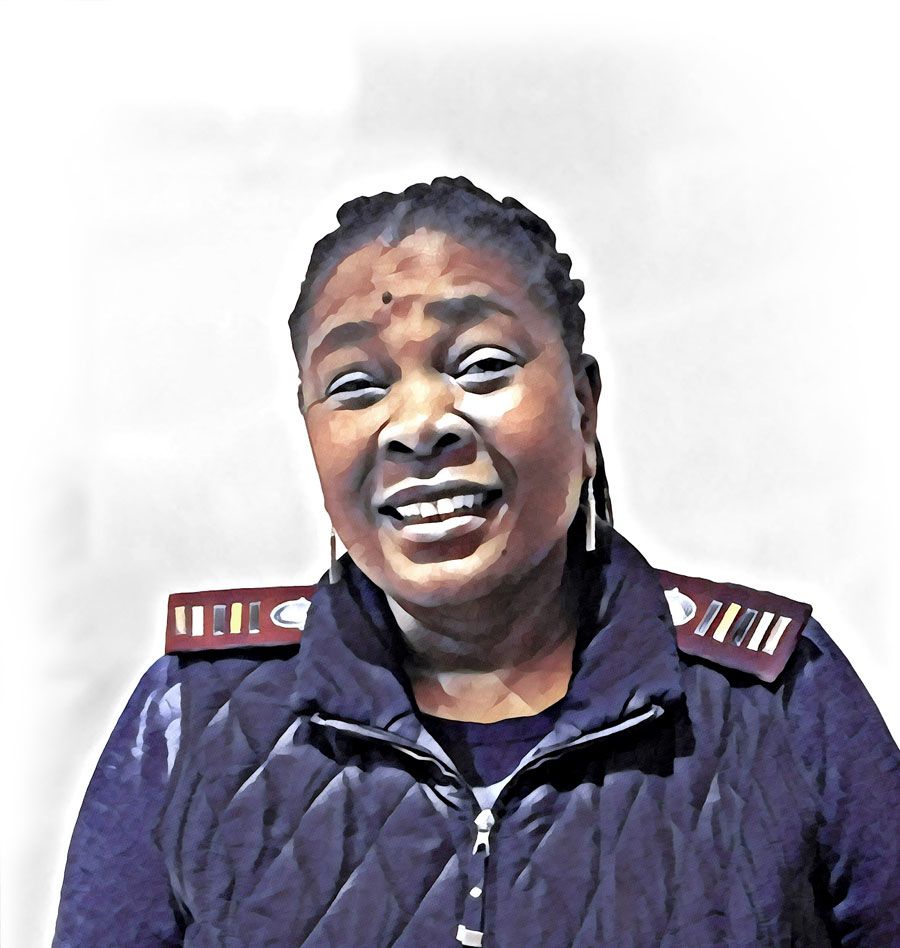
Sister Zanele Skosana
Sister Zanele Skosana
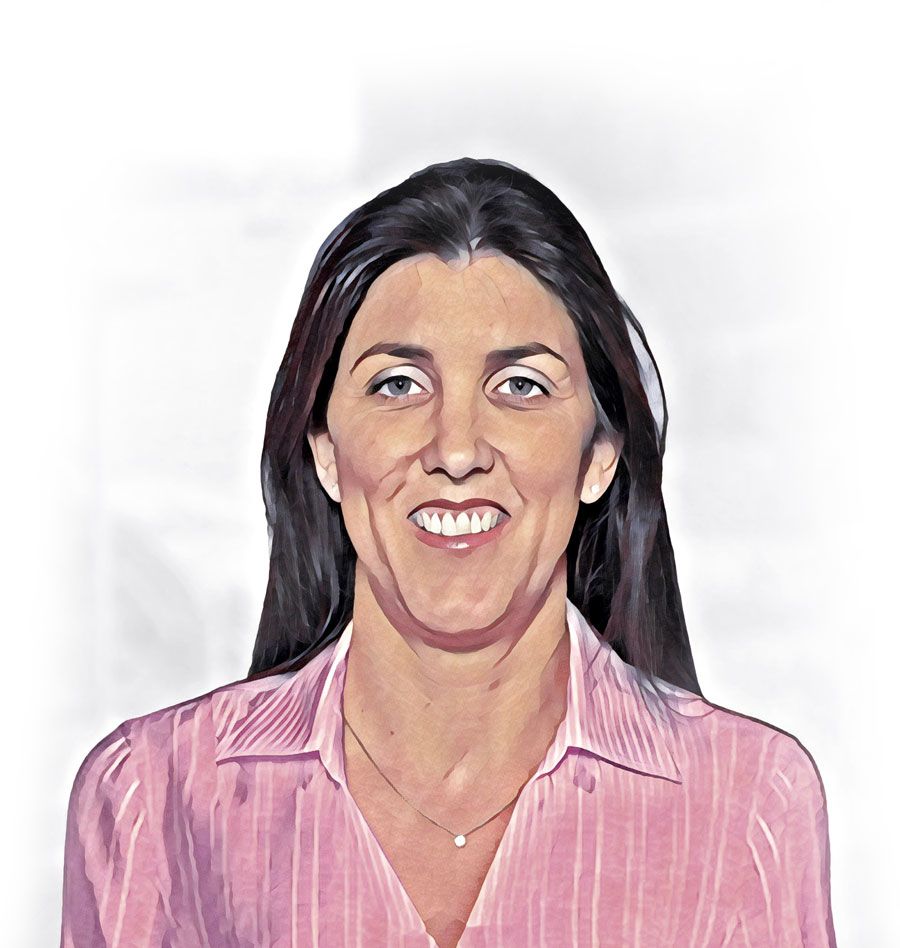
Fiona Edmundson
Fiona Edmundson
Fiona Edmundson
Fiona Edmundson was appointed in March as the head of legal South Africa for Anglo American. Prior to that, she held the position of deputy head of legal South Africa and has been with Anglo American for 10 years. In addition to managing and providing guidance to the South African team in various legal disciplines, she focuses her energy on strategic commercial matters affecting the South African business units. The Covid-19 pandemic has given her an opportunity to upskill and develop in the field of medical licensing – an area of law she didn’t think she would get involved in while working for a mining company.
“Be proud of yourself and lead with your authentic self”
You began your job in March – just as lockdown began – what have been the unique challenges you’ve faced due to the timing of your appointment?
The Covid-19 pandemic and resultant lockdown in South Africa has certainly posed numerous unique challenges for leaders. The virus has not only created concerns and anxiety about physical wellbeing, but has also challenged mental wellbeing, and required us to completely complete overhaul of the way we work day to day.
Fortunately, I have worked in group legal at Anglo American for 10 years, so I am not a stranger to the team. Keeping the team whole despite everyone being scattered all over the province has been a unique challenge. In my view, the key factors in keeping up team cohesion and morale during these unprecedented times are communication, transparency, trust and empathy. Seemingly small things like checking in one on one with team members on a personal level, having smaller ‘coffee and catch-up’ breaks with colleagues and participating in virtual activities after work help to keep a team cohesive.
Communication needs to be clear, concise, transparent and meaningful. In a time when there is information overload and numerous conflicting pieces of information, as a leader, you need to distil information that team members require in a manner that creates certainty and purpose. It is also important to be honest about what you don’t know, creating transparency and trust. Mental health is also a key challenge in these times. Fear is a huge factor in the pandemic – fear for personal health and family health, fear about the struggling economy, fear of job losses and many other things. Add to the fear the ‘Groundhog Day’ reality of our lives at the moment, and the lack of face-to-face human interaction and mental health becomes a real challenge. Keeping in close contact with team members and connecting with care and compassion helps shift the fear. We have to pay close attention to the signs that team members may be exhibiting – low energy levels, loss of purpose and uncharacteristic outbursts. Although the challenges are unique and we tend, understandably, to focus on all the negative aspects of this pandemic, it also presents unique opportunities. Rising to the challenges presented by Covid-19 is an opportunity for growth in areas we would not normally have an opportunity to grow in. As much as we can, we need to focus on the opportunities rather than the challenges.
Did you expect to end up working for a mining company? What have been some of the most surprising discoveries you’ve made in the industry?
Although I have never shut myself off to the possibility of working in other industries, the technology and media space was historically my comfort zone, and mining was never on the radar. However, when I was approached to work at Anglo American, I did not hesitate. The challenge of working in a different industry was very appealing and the Anglo American name spoke for itself. I felt, and still feel, very fortunate to be offered a position at Anglo American. While the mining industry may not be as transformed as it could be, I feel that – after safety – inclusion and diversity is at the top of the agenda at the company. While there is still much progress to be made, I was surprised from day one at the wide variety of positions women held in the organisation – from mine managers and section engineers to mechanics and mine operators. Certainly, progress is being made in breaking down the stereotypes, which is wonderful to see and be a part of. The other aspect that surprised me is the investment made into communities around the Anglo American operations. One of my first material legal matters when I joined was a community investment scheme that really emphasised to me the importance the company places on the communities around its operations. That was the first of many initiatives I have been involved in.
How have you tapped into your personal power to more than survive – but to thrive – during this unprecedented time in history?
I am by nature empathetic, and compassion and empathy are very much part of my leadership style. Empathy has helped me stay connected to team members and to create connections with colleagues that I may not otherwise have made. We are all on the same Covid-10 journey, but in very different boats, and being able to empathise with colleagues draws us together.
In 1956, a show of women’s power was part of the change in South Africa. For you, what is the most significant shift towards gender equality in recent years?
Time will tell, but I actually think that Covid-10 may well create a significant shift. Lockdown and the work-from-home requirement has seen both genders working from home. From what I have seen, this has resulted in more ‘sharing of the load’ in terms of home schooling, childcare and other household activities. I hope that we retain this balance after the pandemic. Obviously, the #MeToo movement has been significant across the world in recent years.
The global pandemic has presented us with a chance to press the reset button. How would you reshape the future for women with that power?
Again, I have seen in my group of colleagues and friends a better balance between mums and dads regarding childcare, home schooling and household chores during the pandemic. Looking to the future, I would like that balance to be retained so the future is a true partnership between genders in all spheres of life. While work life has been extremely busy during the pandemic, there are aspects that have slowed down – no rushing the kids from extramural activity to extramural activity and nowhere to go over the weekends, so we’re making the most of our immediate environment. Post-pandemic, we should not fall back into the trap of overscheduling.
What is your best piece of advice for the next generation of women entering your professional space?
Be proud of yourself and lead with your authentic self. There is no need to hide what makes you you. Organisations that can harness different strengths from a broad and diverse base of talent will be more complete and dynamic.
Dr Mapitso Bontle Bonokwane-Motsepa
Dr Mapitso Bontle Bonokwane-Motsepa is the occupational medical practitioner at Kolomela mine in Postmasburg in the Northern Cape. She obtained her degree from the Instituto Superior de Ciencias Médicas de Villa Clara in Cuba, and counts among her skills emergency medicine, trauma and medical emergency care, and obstetric procedures. She also works part time in private practice at surrounding mines. She is married with three children.
"Always be clear about what your goals are”
What does your position entail?
As well as being the occupational health practitioner at Kolomela mine in Postmasburg, I am the legal appointee as per section 13 of the Mine Health and Safety Act. I play an advisory role to management and employees regarding health matters, working capacity and requirements, as well as working conditions and returning to work after an illness. I advise management regarding the department of mineral resources and energy’s regulations, and ensure that they comply to statutory requirements. I provide expert advice as a member of the operations risk assessment team to ensure minimal production interruption. Lastly, I optimise human resources in a way that maximum output is delivered by the section as a whole, while continuously striving towards improving workers’ performance and work ethic.
What personal experience was the catalyst for you finding yourself where you are today?
While growing up in the rural area of Thaba Nchu in the Free State, TB was a serious public health issue and I saw myself becoming a doctor and serving my community to make a difference. During my high school years, the rising number of HIV infections increased my interest in becoming a doctor. After completing my medical degree, I returned home to Kuruman to do my community service. Being surrounded by mines, I treated a lot of mine workers for work-related illnesses and injuries. That’s when I became interested in occupational medicine.
South Africa, and the world, is dealing with a deadly pandemic. How have you tapped into your personal power to more than survive – but to thrive – during this unprecedented time in history?
I draw my strength from the Almighty, Jehova. Through Him, I am grateful to be alive every day. My husband is my pillar of strength. I am an eternal optimist and I see this period as a time for growth; for new possibilities.
In 1956, a show of women’s power was part of the change in South Africa. For you, what is the most significant shift towards gender equality in recent years and what more needs to be done?
Ever more companies are employing women and placing women in managerial positions. This is commendable. More support should be given women in the workplace, especially from their male counterparts, to ensure that these women succeed. Furthermore, we need to help young women become future leaders so they can contribute towards gender equality.
What, for you, is the single biggest challenge women face in this country and worldwide?
Gender-based violence. Government has called for everyone to take a stand against gender-based violence. The response from different sectors is appreciated, however, the road is still long. Together, we can beat gender-based violence, but our men must take the lead.
What would your best piece of advice be for the next generation of women entering your professional space?
Have clarity and focus. Always be clear about what your goals are, focus on them and take action. No one is going to do it for you! More importantly, just lean in.
How do you relax at the end of the day?
I go for a walk with my husband or children to clear my head and to stimulate the happy hormones. I round off the day with a warm bath and a good book.
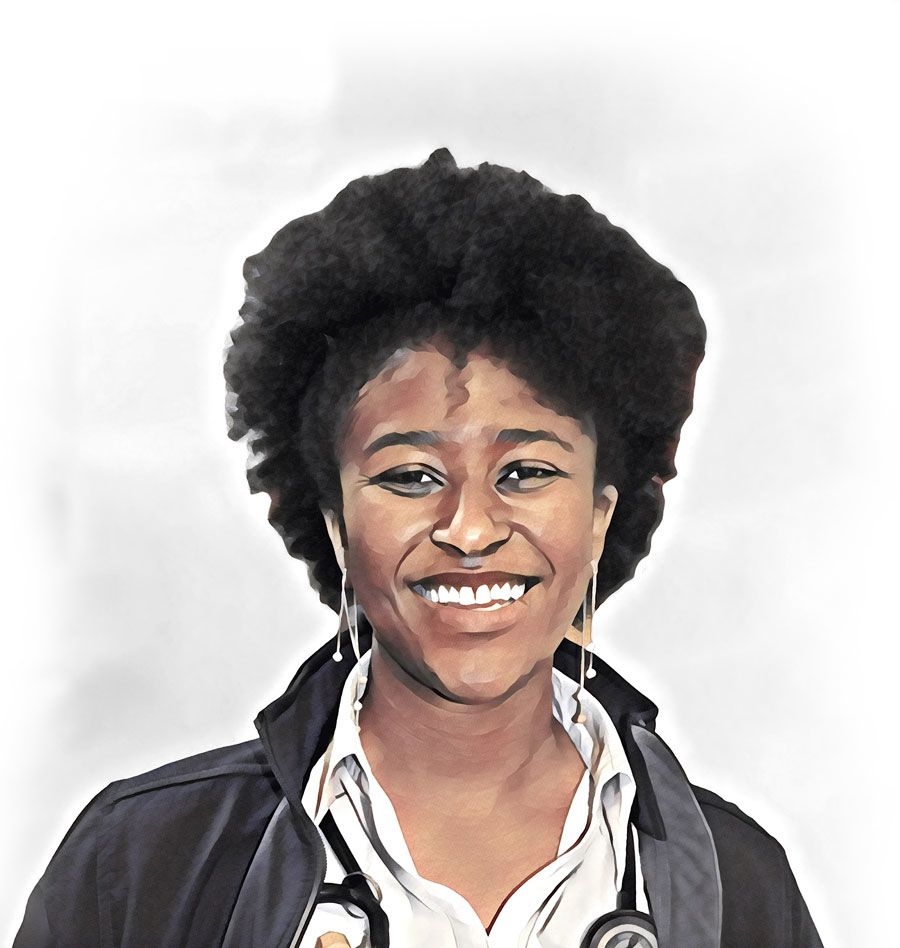
Dr Mapitso Bontle Bonokwane-Motsepa
Dr Mapitso Bontle Bonokwane-Motsepa
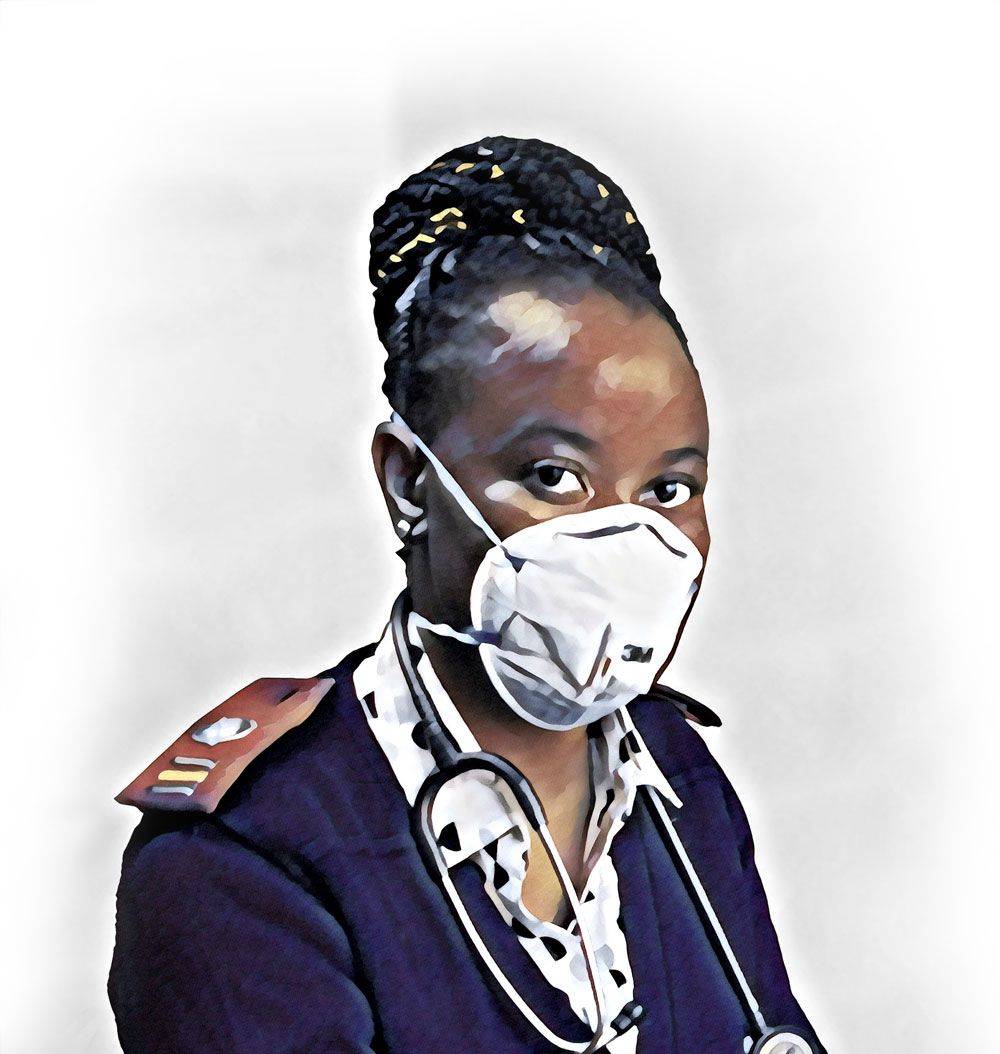
Debra Masunyane
Debra Masunyane
Debra Masunyane
Debra Masunyane is a professional nurse in Amandelbult Hospital in Thabazimbi, Limpopo. She obtained her bachelor’s degree in nursing science at Sefako Makgatho Health Science University, previously known as Medunsa, in 2010. She did her community service in 2011 at Jubilee Hospital’s paediatric unit and then moved to the maternity ward in 2012. In 2013, she joined Amandelbult Hospital and worked at Tumela Clinic as a locum sister. She was employed permanently in 2014 before joining Dishaba Clinic in 2017. Debra is passionate about personal development and women empowerment.
Nursing has come to the fore during this health crisis. After 10 years in a range of nursing positions, what do you think nurses need most to be able to do their work effectively?
We need support from both our managers/leaders and the community at large. This is not the time to vilify us.
How is working in a mining environment different and what do you most enjoy about it?
It’s a male-dominated area, so a lot of gender stereotypes come into play here. I enjoy the diversity I’m exposed to from different cultures, races and nationalities. It is all so amazing.
How have you tapped into your personal power to more than survive – but to thrive – during this unprecedented time in history?
I’m now paying more attention to my emotions and thoughts. I do not function well when discouraged, so, in this season, I’m trying hard to see the good and celebrate the small victories.
In 1956, a show of women’s power was part of the change in South Africa. For you, what is the most significant shift towards gender equality in recent years?
There’s a great shift in the workplace as more women are seen in higher positions -- not that we have achieved that ‘equality’ yet, but we are on a great path towards it.
The global pandemic has presented us with a chance to press the reset button. How would you reshape the future for women with that power?
Through mentorship, which is something we weren’t really exposed to in our earlier years. This is without disregarding the effort of the wise and strong women who paved the way for us.
What would your best piece of advice be for the next generation of women entering your professional space?
Nursing remains one of the most fulfilling jobs, but it is challenging. It draws from who you are as an individual; it’s more than the formal education that one acquires. So, if you are considering being a nurse, I’d say you should be ready to be challenged into growing, character and all. Your character has to be adaptive and kind because, from training to the day you retire, you will be dealing with many people whose characters aren’t as you’d prefer, and many of these will be people seeking help from you. As a nurse, you remain humbled even in the toughest of situations.
Describe your approach to your professional life in a sentence.
It’s been a humbling experience and a chance to achieve self-growth.
Karen tsao
Karen Tsao is the environment, community, occupational hygiene, health and safety coordinator for De Beers Exploration Canada. With a master’s degree in occupational hygiene from the University of Toronto, this role has been a new, exciting challenge for her as she gets to learn something new every day. This support is especially appreciated during the coronavirus pandemic when assessing, managing and implementing Covid-19 controls in the workplace. She also gets to watch a movie now and then.
“Make decisions based on your beliefs and not on your perceived expectations from others”
Did you expect to end up working for a mining company? What have been some of the most surprising discoveries you’ve made in the industry?
I never expected to be working for a mining company, and neither did my family! It was a big jump from pharma manufacturing to exploration/mining, but a jump that has been so rewarding and continues to be an adventure. The most interesting and surprising discoveries that I’ve noticed in this industry is how the processes are very people dependant as opposed to being machine dependant. This is great because it showcases the competence of all employees, but it also makes for a challenge with safety because people-oriented processes make for higher health and safety risks.
What does your job entail on a daily basis?
What is great about this position is that every day is different. Some days, I am in the office working on improving our current safety systems and programmes and participating in meetings, and on other days I am in the field completing site inspections and travelling to different project sites. All in all, my job is to support our team to ensure a safe and healthy workforce and environment.
What personal experience was the catalyst for you finding yourself where you are today?
I distinctly remember when I learnt that many people are exposed to so many different chemical, biological and physical hazards that lead to illnesses and injuries. I was volunteering at a hospital clinic and a patient came in for an audiogram due to suspected noise-induced hearing loss. I was quite ignorant an unaware that people’s health and safety were at risk every day, but that this is also their way of making a living. What was shocking was that many illnesses/injuries are very preventable, and that there is a field that specialises in prevention of injuries/illnesses in the workplace, which is what I have decided to pursue.
How have you tapped into your personal power to more than survive – but to thrive – during this unprecedented time in history?
Resilience is something that I have been trying to develop, especially during tough times like these. Trying my best, holding my head up high and learning to not sweat the small stuff has helped me to navigate and grow through uncertainty.
For you, what is the most significant shift towards gender equality in recent years globally and in your company?
A great example of the shift towards gender equality in recent years globally, and especially in our company, is the fact that I, as a young female professional early in my career, have not experienced any obstacles or hardships blatantly related to gender biases. I feel comfortable expressing my concerns and ideas in my group without fear of being dismissed due to my gender or age. Although there is still room for improvement and the problem is not solved, I think this is an illustration of our progress towards gender equality.
The global pandemic has presented us with a chance to press the reset button. How would you reshape the future for women with that power?
I would reshape the future for women by encouraging them to follow their interests, even if their interests don’t fall into societal ‘norms’ or expectations. Make decisions based on your beliefs and not on your perceived expectations from others.
What would your best piece of advice be for the next generation of women entering your professional space?
My simple advice for the next generation of women entering the field of health, safety and the environment is to be flexible and adapt to change. Things don’t always go as planned, especially in this field, incidents happen!
What is your favourite movie, and why?
My favourite movie at this time is Three Billboards Outside Ebbing, Missouri. It is a movie with everything — comedy, tragedy and love, with a commentary on current issues about the criminal justice system. I was speechless after finishing the movie.
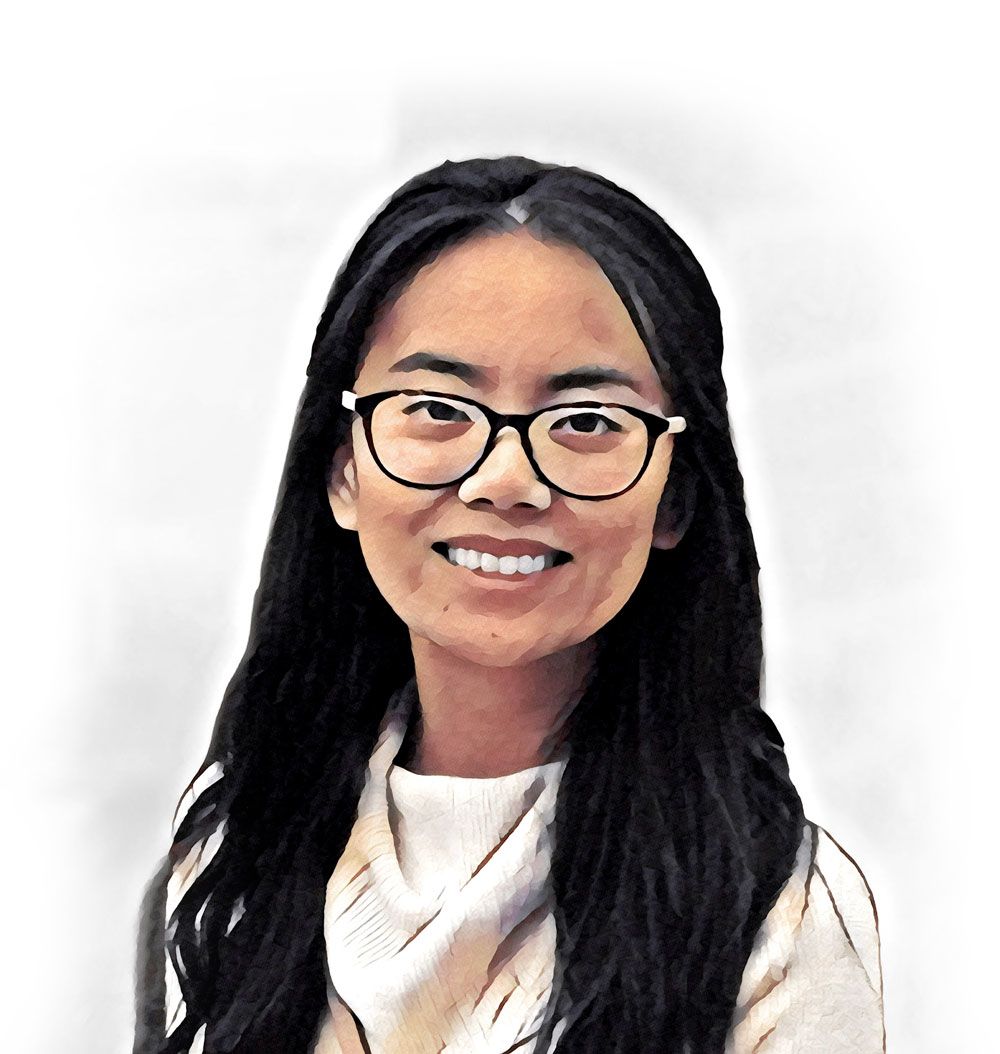
Karen Tsao
Karen Tsao
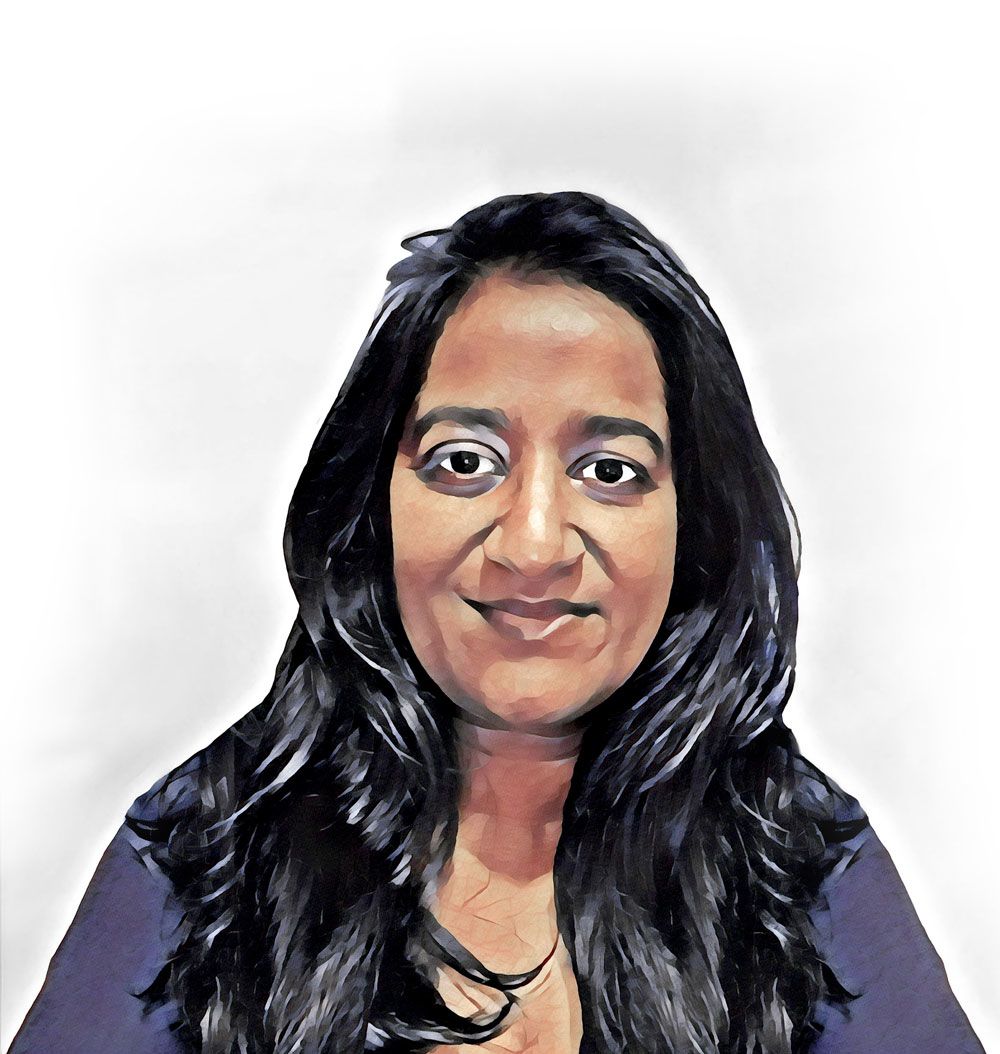
Vanessa Naicker
Vanessa Naicker
Vanessa Naicker
Vanessa Naicker is head of global talent at Anglo American. She works with business leaders in the corporate space and in small and medium-sized enterprises, as well as with young leaders across the world, to realise value and impact in their areas of influence. She is passionate about technology and working with people to unlock opportunities for growth. Her deep concern and love for Africa, and her belief that education and knowledge are critical for social mobility, drives a lot of her activities outside of her day job.
"Instilling greater gender parity across all forms of economic participation – education, politics and leadership – is critical .’’
Did you expect to end up working for a mining company? What have been some of the most surprising discoveries you’ve made in the industry?
I started off my career in the petrochemical industry and, while there may be lots of adjacencies between mining and petrochemicals, I didn’t foresee that I would be joining mining until the opportunity presented itself. I certainly didn’t expect to remain in mining for all this time. That said, I consider myself a stalwart in the mining industry, and my discoveries have been varied and surprising along my journey. For one, as a young metallurgical engineer joining the world of work, I expected career progression to be largely in my field of study, but soon found out that my technical foundations and broader interests could intersect, allowing me to pivot into various roles as my career progressed.
What does your job entail on a daily basis?
I am part of a global team looking at strategic workforce planning and learning for the Anglo American group. Like almost all industries, mining is facing unprecedented technological and digital influences, requiring us to think more deeply about the future of work and the skills that are required for the future. In my job, I engage daily with internal and external stakeholders to collaborate, design and implement strategies for early careers in our business. I lead a small team of people who are located in different parts of the world and our day-to-day activities are focused on university engagements, early talent recruitment drives that support our operations across the world, and the building of learning journeys that equip our young professionals with the skills and experiences necessary for taking on substantive roles in our business.
What personal experience was the catalyst for you finding yourself where you are today?
While I have a long career in mining at Anglo American, my roles have largely been in the technical space until very recently. In fact, prior to taking on my current role in people management, I spent a good number of years honing my skill and expertise in business improvement, and appreciating value flows and bottom line impacts where they matter in our operations. While doing this, I became acutely aware that, while the professional gains of implementing technology solutions is fantastic, it is not sustained if the people involved in the change don’t own it. Adopting data and technology to augment work and therein benefit through improved skills, changes in behaviour and making more informed decisions is the greater reward. My passion for technology advancement and adoption remains unwavering, but I am equally intrigued and focused on looking to technology to positively impact our current socioeconomic challenges, in particular being more inclusive and diverse and moving the dial on social mobility. The impacts on the future of work and jobs as we know them today will change, and this is the catalyst for where I find myself today. I guess working through the dynamics of people and technology is a prevailing motivator of my work.
How have you tapped into your personal power to more than survive – but to thrive – during this unprecedented time in history?
Covid-19 is certainly an unprecedented event in our times and I would love to see how history will record it decades from now. I am naturally resilient and a planner and, perhaps to the surprise of many of my work colleagues, an introvert. So, for one, my introverted self was excited by the prospect of the national lockdown, especially in the early days, but, as the days turned to weeks and then months, I have found that I am frustrated with my limited freedom of mobility and just being able to meet up with people I love and care for in person, but, at the same time, I’m fully supportive of physical distancing and basic hygiene to flatten the curve. I was extremely grateful when lockdown was eased a little and allowed me to venture out for a morning run. Being a planner who is willing to experiment has also helped, particularly in putting in place routines that support both work and family life. My nine-year-old has been doing school virtually since March and I’ve had to ensure that I am available to support him when required.
On the work front, my team and I have embraced technology and seamlessly moved our work to virtual platforms to keep the people connections. Weekly team and one-on-one check-ins, focused more on the heart and mind than just the work, is our new normal. I feel that I am more attuned to my team members’ health and wellbeing today than ever before.
For you, what is the most significant shift towards gender equality in recent years globally and in your company?
When I joined the mining industry in the late 1990s, there were very few women, particularly in technical roles. When I walk around our sites now, I see so many women in roles that many – including women – thought were only for men. It demonstrates the will of women to take on challenges, not to just stare down or argue against paradigms and prejudices, but to actively face up to them and to lead by example. This courageous outlook by women has in some ways moved the dial. As women, we are competing for roles on merit and showing the world that we can thrive in positions just as well as our male counterparts. As technology – be it robotics, automation or digital platforms – become more available for adoption in the workplace, they allow for greater workplace flexibility, making many more jobs accessible across genders. Another significant shift towards gender equality has been a shift in society to embrace roles more openly. Today, many of my male friends are considering taking time off from their jobs to stay home with their kids while their partners bring in a steady income … a dynamic that was certainly rare in years past.
The global pandemic has presented us with a chance to press the reset button. How would you reshape the future for women with that power?
The global pandemic can mark a new beginning if we seize the opportunity. As a start, let’s critically review the workplace and its workforce roles, and look to afford greater flexibility by focusing on outcomes rather than facetime to build on the grace and care we have demonstrated through the pandemic, and leverage that going forward. We need to do more to empower and equip our people with tools and skills, and then trust them to deliver on commitments and produce results. Instilling greater gender parity across all forms of economic participation – education, politics and leadership – is critical. In the workplace, be intentional about getting gender parity across all levels of work, so that we build the pipelines that have more women actively participating in the labour market so they are able to grow and compete for top jobs. I will work with my male colleagues and those women who have taken on leading roles to get them to understand that, now more than ever, we need them to support women’s careers – not to overlook or avoid us, but mentor and grow us because, when women have the same opportunities to succeed and lead as men, it makes the workplace safer and more enjoyable for everyone.
What would your best piece of advice be for the next generation of women entering your professional space?
The world of work is opening up to women, allowing us to take on substantive professional roles across industries and in society at large. Let’s not shy away from it as a result of fear, but take it on courageously knowing that other women have traversed that path and are rooting for you to do the same. This is an exciting time for any young person who is driven by purpose to join the professional space and make a difference. You will be shaping a new world that is more responsible, more accessible and is being built to sustain generations to come.
You are tasked with developing young talent. What is the best piece of advice you would give a young person in today’s world?
Let’s start off by ensuring the girl child – in fact, all children – value the power of education, encourage all pupils to do science, technology, engineering and maths in school, build the skills for entrepreneurship early in life and increase awareness of career choices and options to pique their curiosity and interest. While the consensus view is that traditional education systems have not kept pace with the changing demands of the workforce, I think today’s access to data and technology empowers any young person to be more informed and, with information, do better with their choices.
Elizna Hovy
Elizna Hovy is acting section engineer in the treatment plant of Anglo American’s Venetia Mine in Musina, Limpopo. The 28-year-old mechanical engineer from the Free State grew up on a farm and, from an early age, enjoyed the workings and mysteries of engines. In her second year studying engineering, she was awarded a bursary from De Beers and completed an undergraduate degree in 2015. She joined De Beers Voorspoed Mine as an engineer-in-training in 2016, and has been working towards becoming a professional engineer since then.
“Keep those qualities that make you a woman – they are what make you special and add a different, and often necessary, dimension to any profession.’’
Did you expect to end up working for a mining company? What have been some of the most surprising discoveries you’ve made in the industry?
Honestly, no. Mining was actually one of the areas I thought I wouldn’t work in due to the impact on the environment. This all changed when I got a bursary with De Beers. My first time on a mine was during vacation work at the end of my second year of studies, and I must say the mine was not at all what I thought. The sheer size of the machinery and plant left me awestruck. The more time I spent on the mine, the more I wanted to learn about the equipment and become involved. As to the most surprising discoveries – despite its impact on the environment, the mine does a lot for the community in which it operates and it does manage its impact on the environment. Another surprising discovery for me was the family of people I became part of when I joined De Beers Voorspoed Mine. Although the culture is now changing slightly with newer generations, I never expected to enter a large mining company and get the feeling of being accepted as family.
What has been your biggest challenge and biggest success in your job?
The biggest challenge for me to date is to get my government certificate of competency (GCC), which I need to be legally appointed under the Mine Health and Safety Act as a section engineer. I have written the exam three times to date without success. There are certainly other challenges related to managing people, but my GCC is the first that comes to mind.
What has been your biggest success?
Improving my people and interaction skills ... I went to study engineering because I am an introvert and thought I didn’t want to work with people. When I started realising what my role would be as engineer on a mine, I had to quickly change my approach and learn how to not only interact with people, but also how to connect with them. This is a continuous process and I learn more every day.
What personal experience was the catalyst for you finding yourself where you are today?
There is no one specific experience. My parents raised us with the drive to work hard to achieve what we want, but not only that – they taught us that our best was good enough for them, and that acceptance, in my opinion, is what made me thrive and push through the hard times. It has taught me perseverance.
How have you tapped into your personal power to more than survive – but to thrive – during this unprecedented time in history?
I am a Christian by faith and it is the knowledge that God is still in control amid these challenging times that has kept me calm and allowed me to continue fighting on.
In 1956, a show of women’s power was part of the change that occurred in South Africa. For you, what has been the most significant shift towards gender equality in recent years?
The opportunities that my generation of women has at their disposal. Years ago, the career choices for a woman was teaching, nursing or as an administrator – whether any of those were your passion or not. Today, we can choose to follow our passion, whether it is still becoming a teacher, nurse or administrator, or whether it is becoming an engineer, a scientist or a farmer –you name it.
The global Covid-19 pandemic has presented us with a chance to press the reset button. How would you reshape the future for women with that power?
The future, in my opinion, has been staged to give women all the opportunities they need. There are several drives to assist young girls in gaining exposure in the different fields of study and different careers through initiatives such as WomEng, irrespective of what areas of life they come from [Women in Engineering is an award-winning leadership incubator developing the next generation of high-skilled women for the engineering and technology industries]. What I would like to shape is a better balance between the empowerment of all genders. This is a sensitive balance and tipping the scale to one side upsets that balance. I do not necessarily know how to achieve this balance, but it is something I would like to see.
What would your best piece of advice be for the next generation of women entering your professional space?
Work hard and be yourself. Don’t try to conform to a man’s version of the profession you are entering. Keep those qualities that make you a woman – they are what make you special and add a different, and often necessary, dimension to any profession.
Describe yourself in one sentence.
I am a self-driven, hardworking young woman trying to live life to the fullest.
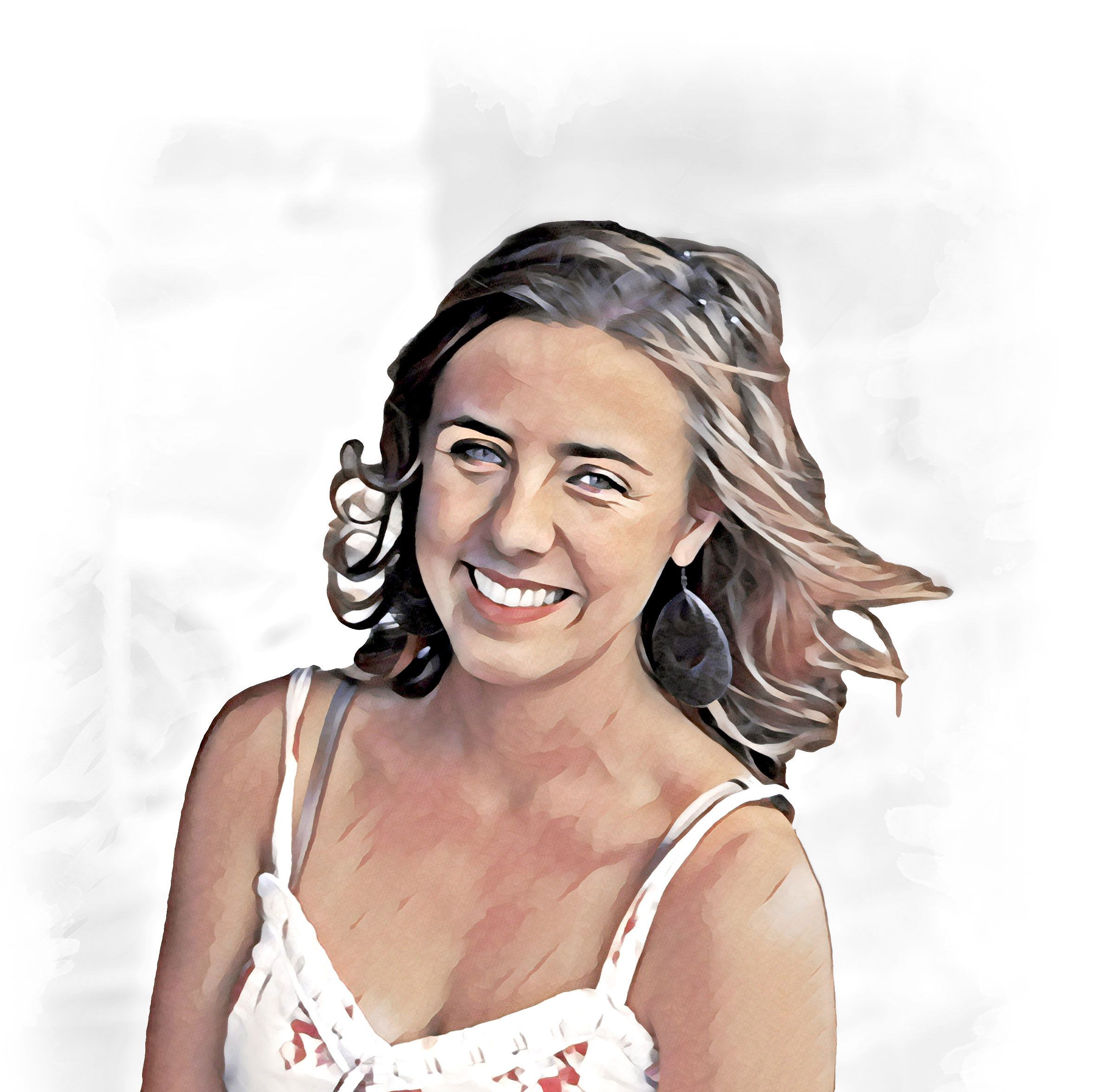
Elizna Hovy
Elizna Hovy
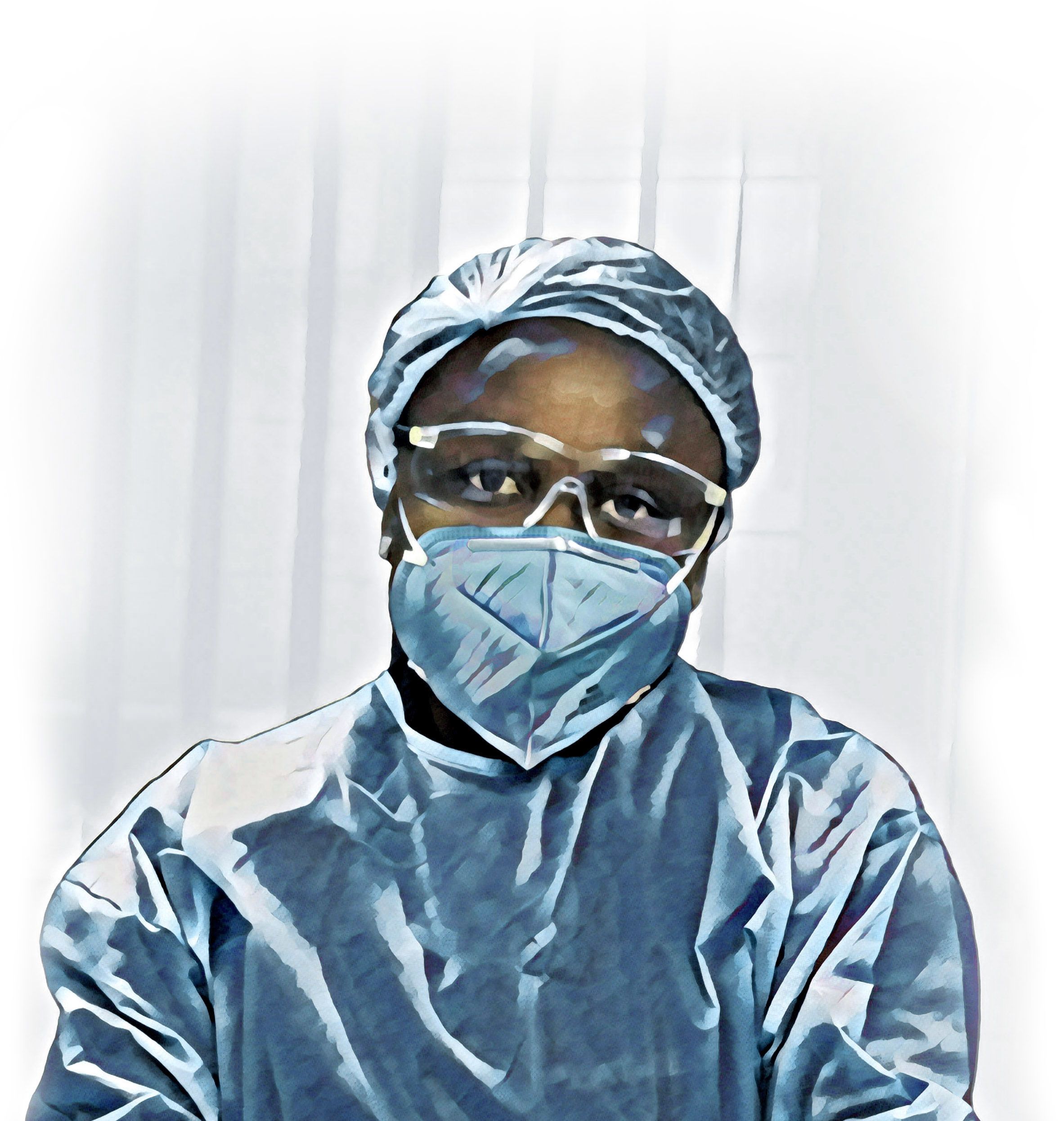
Lebogang Rasepae
Lebogang Rasepae
Lebogang Rasepae
Lebogang Rasepae is an auxiliary nurse at Amandelbult Hospital in Thabazimbi, Limpopo. Currently working in the emergency room, she’s been on staff at the hospital, which services the community around Anglo American’s Tumela Mine, since 2006. She qualified 15 years ago from the HealthNicon School of Nursing in Vereeniging and, over the years, has worked across disciplines.
"I encourage all young women to educationally empower themselves."
You have been a nurse for 15 years, what have been the most difficult challenges to navigate during this time?
Since the Covid-19 pandemic broke out, our workload has increased as the infection rates have increased. It is also challenging dealing with the infections our colleagues develop, as well as the death toll. Social distancing is not possible in bedside nursing. Most patients are referred to the hospital from the nearby clinics and I am working in the emergency ward now. I am working in isolation where we observe our confirmed positive Covid-19 cases, as well as other isolation wards where we keep the patients under investigation. At times, when we need to transfer patients to our specialists, we struggle to find beds as most hospitals are full.
You’ve spent your career at Amandelbult Hospital in the mining sector – what about your job makes you smile?
When patients’ wellbeing improves, it uplifts my mood daily. Also, during this pandemic, the recovery of Covid-19 patients makes me happy. It was always my dream to be a nurse, so I am living my dream.
How have you tapped into your personal power to more than survive – but to thrive – during this unprecedented time in history?
I have learnt during this pandemic that life is short. It has taught me that we all need to live our lives to the fullest. Of course, I am surviving this moment in history by adhering to the rules and regulations as outlined by those in my profession – wearing masks, washing hands, sanitising and practising social distancing.
In 1956, a show of women’s power was part of the change in South Africa. For you, what is the most significant shift towards gender equality in recent years?
In 1956, women had no say at all -- their place was in the kitchen. Things have changed a bit as we now see women in Parliament, for example. Yet women are still being brutally raped and killed. Gender-based violence is still a big problem in South Africa. Men are also still occupying most senior positions at work and get paid more than women.
The global pandemic has presented us with a chance to press the reset button. How would you reshape the future for women with that power?
I would like women to have easy access to opportunities. For example, for me to study my family helped me a lot. My cousin, Jeanette Morupi, paid for my studies at a private nursing college because my application was always turned down at the government colleges.
Women need to be given positions that have historically been labelled as ‘male’ occupations. Also, the statistics show that more men are getting the coronavirus, and this is because women are taking the health advice more seriously than men.
What would your best piece of advice be for the next generation of women entering your professional space?
I would advise them that nursing as a profession is more about caring, loving and giving back to your community than any other expectation. I encourage all young women to educationally empower themselves.
What five words would your colleagues use to describe you and your approach to your work?
Generous. Loving. Dedicated. Committed. Goal-driven.
Gallery
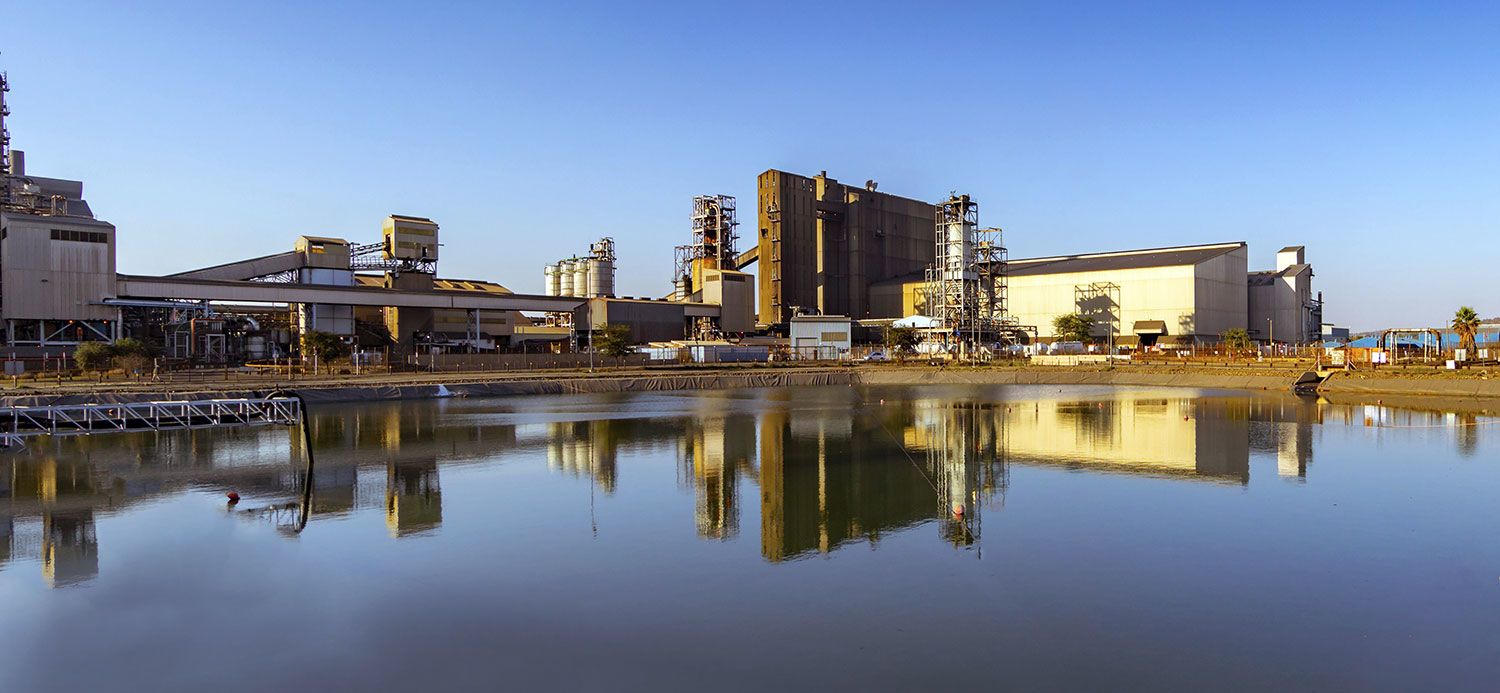
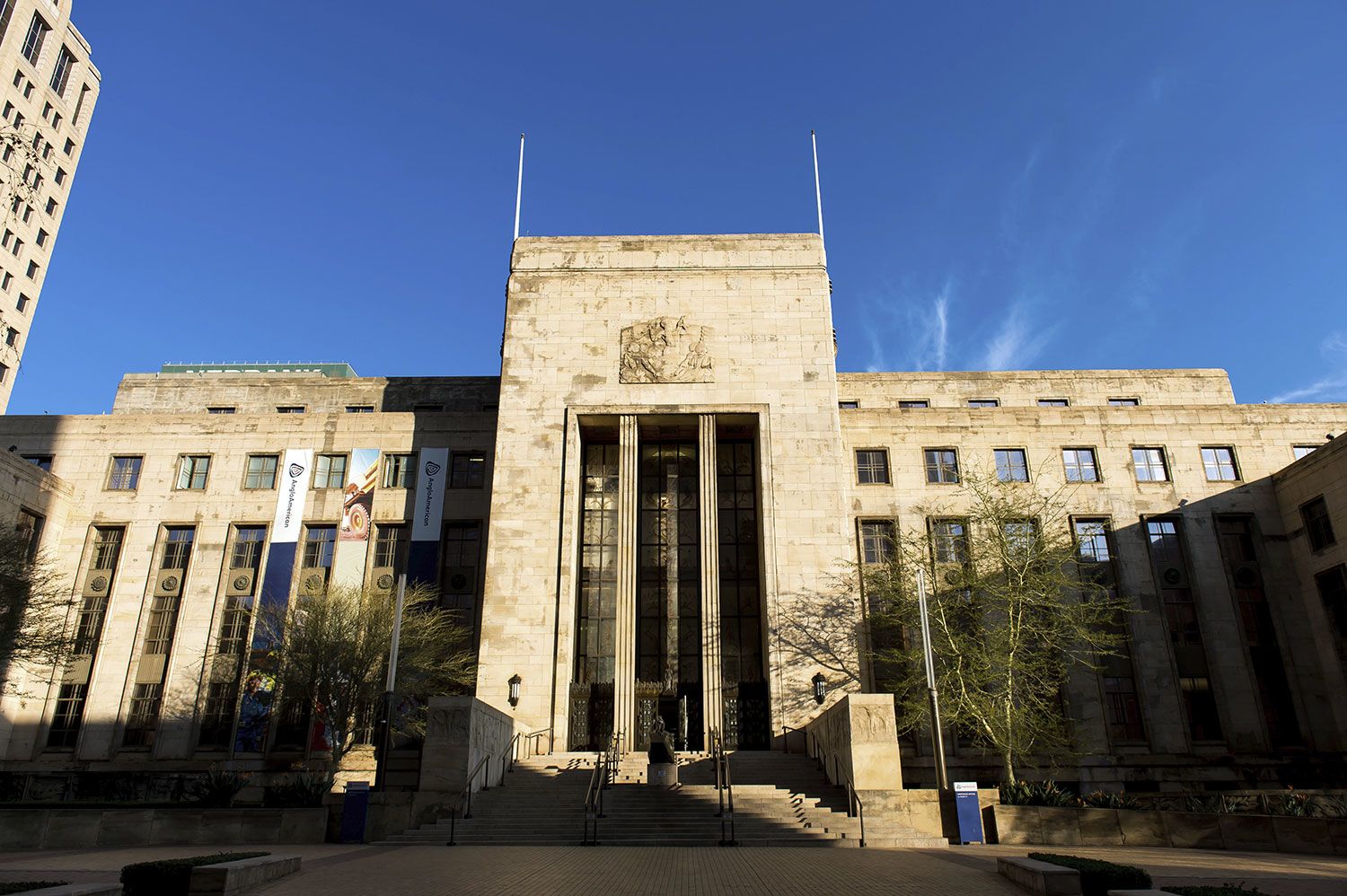
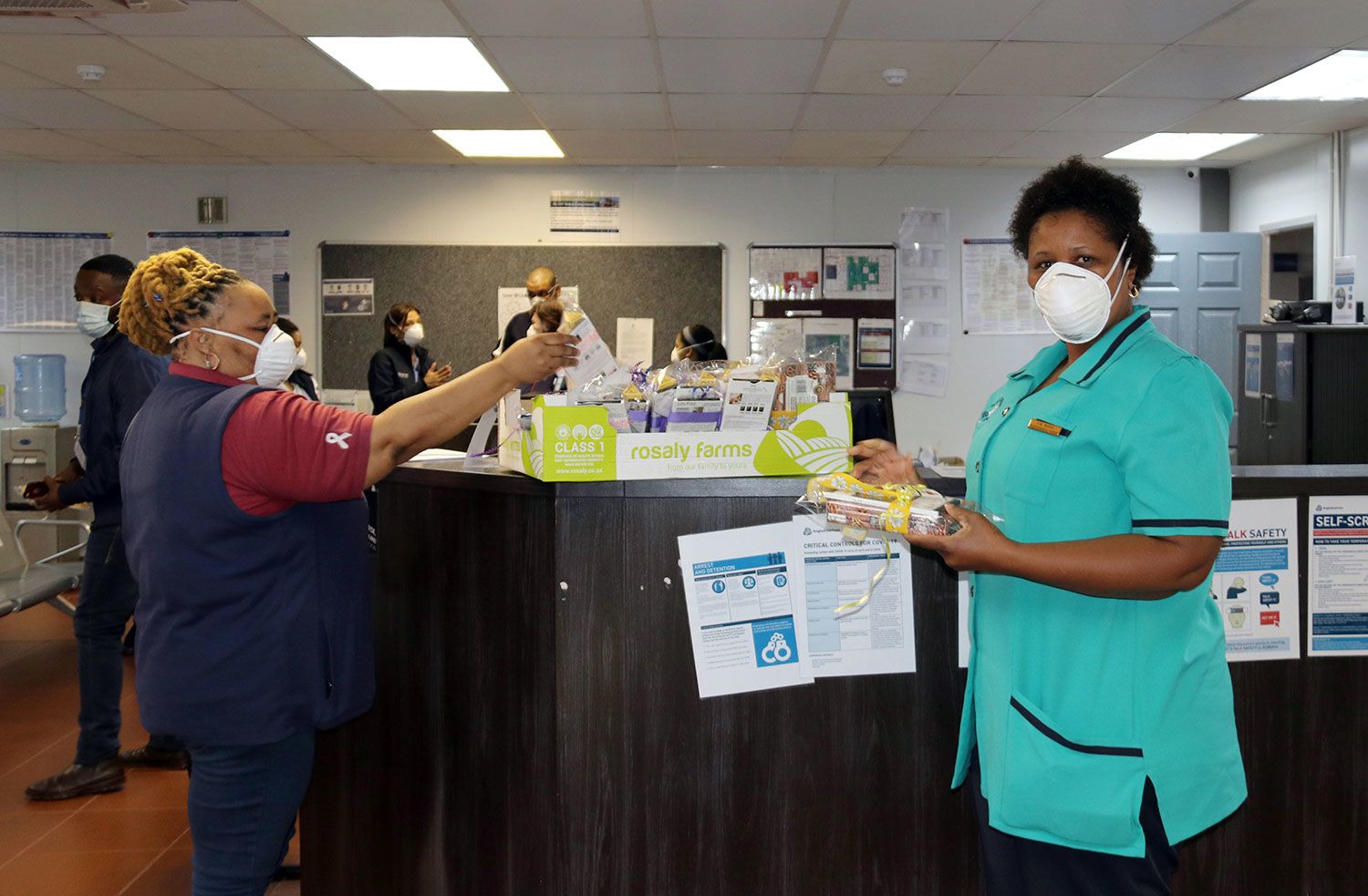
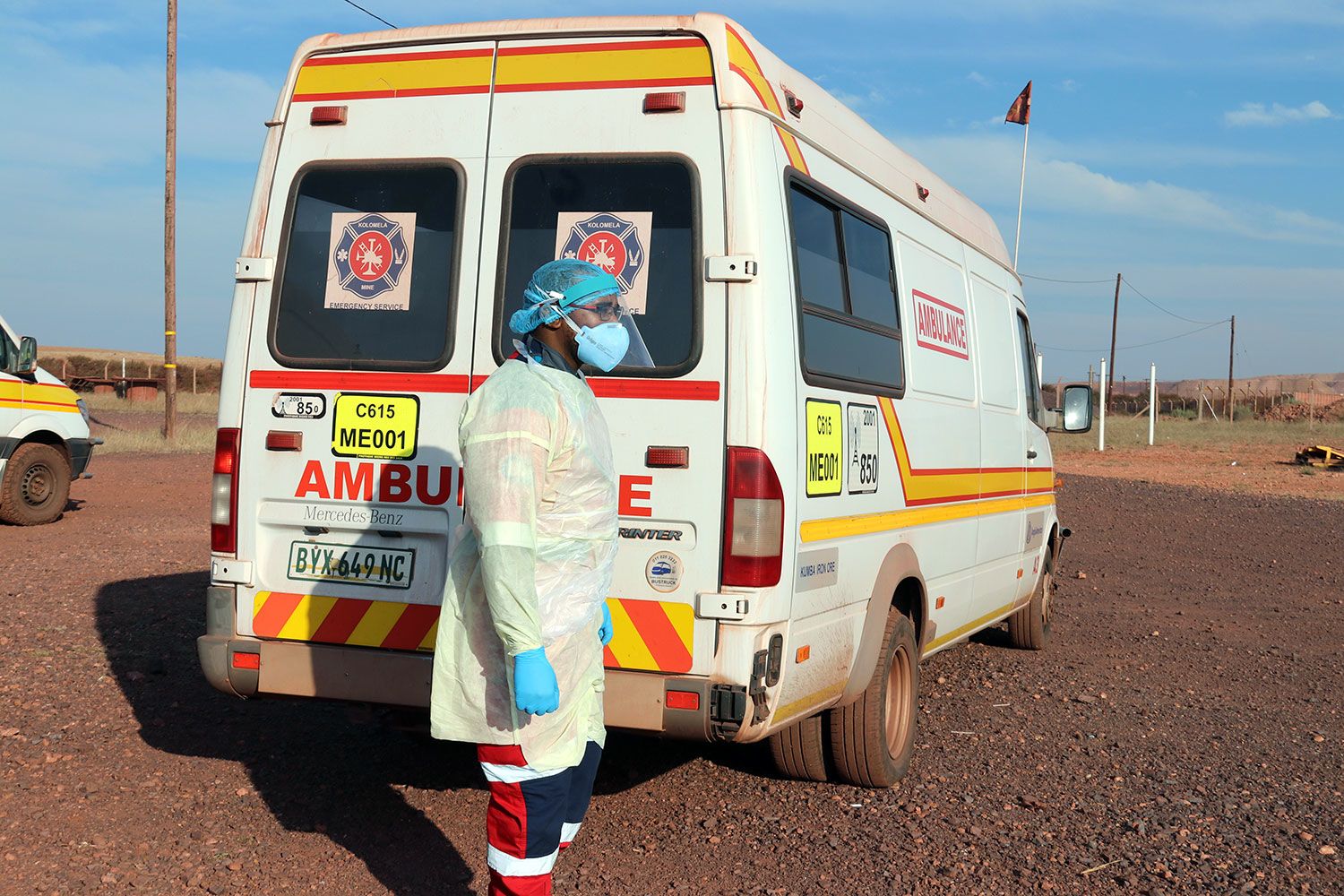
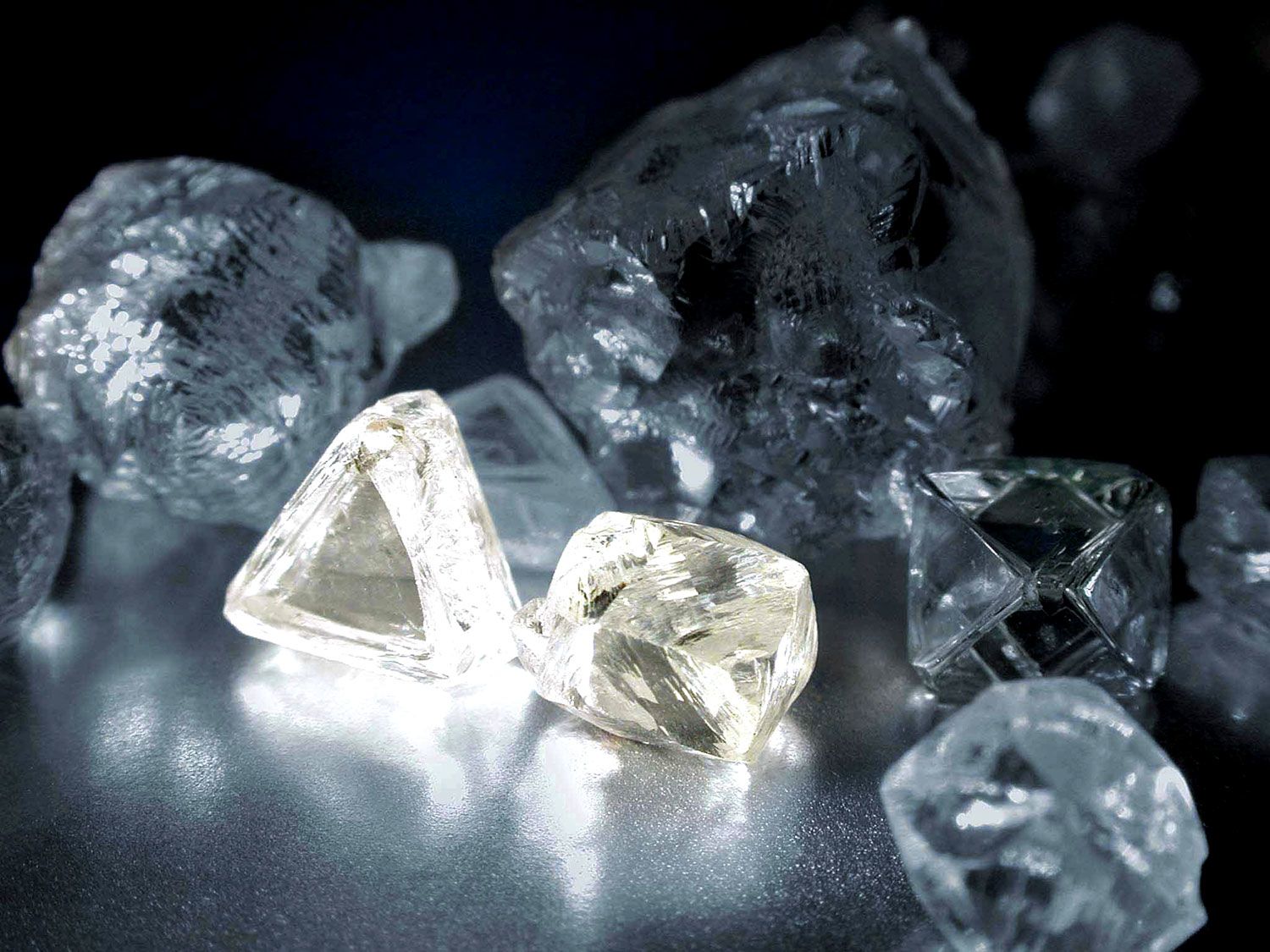
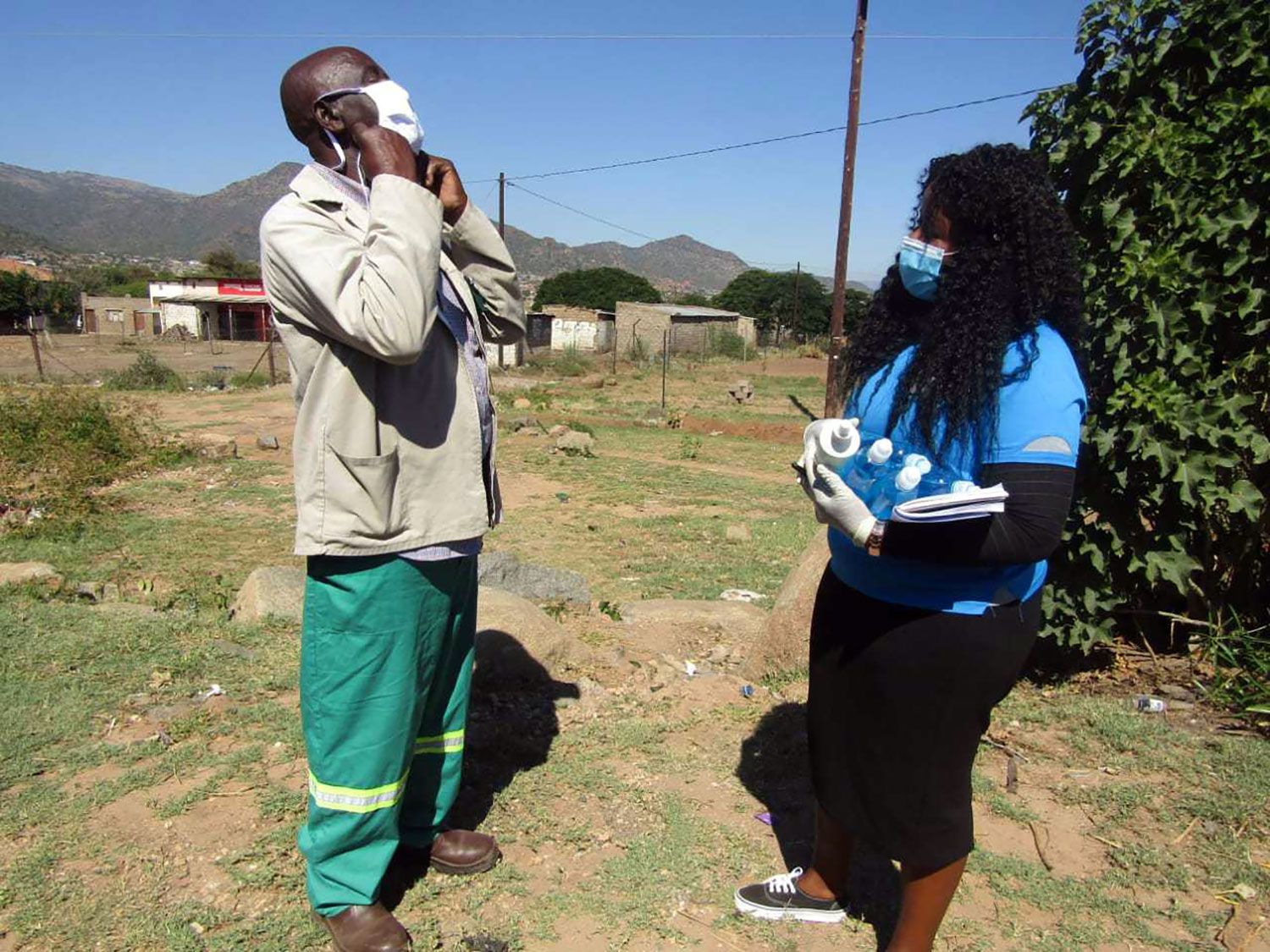
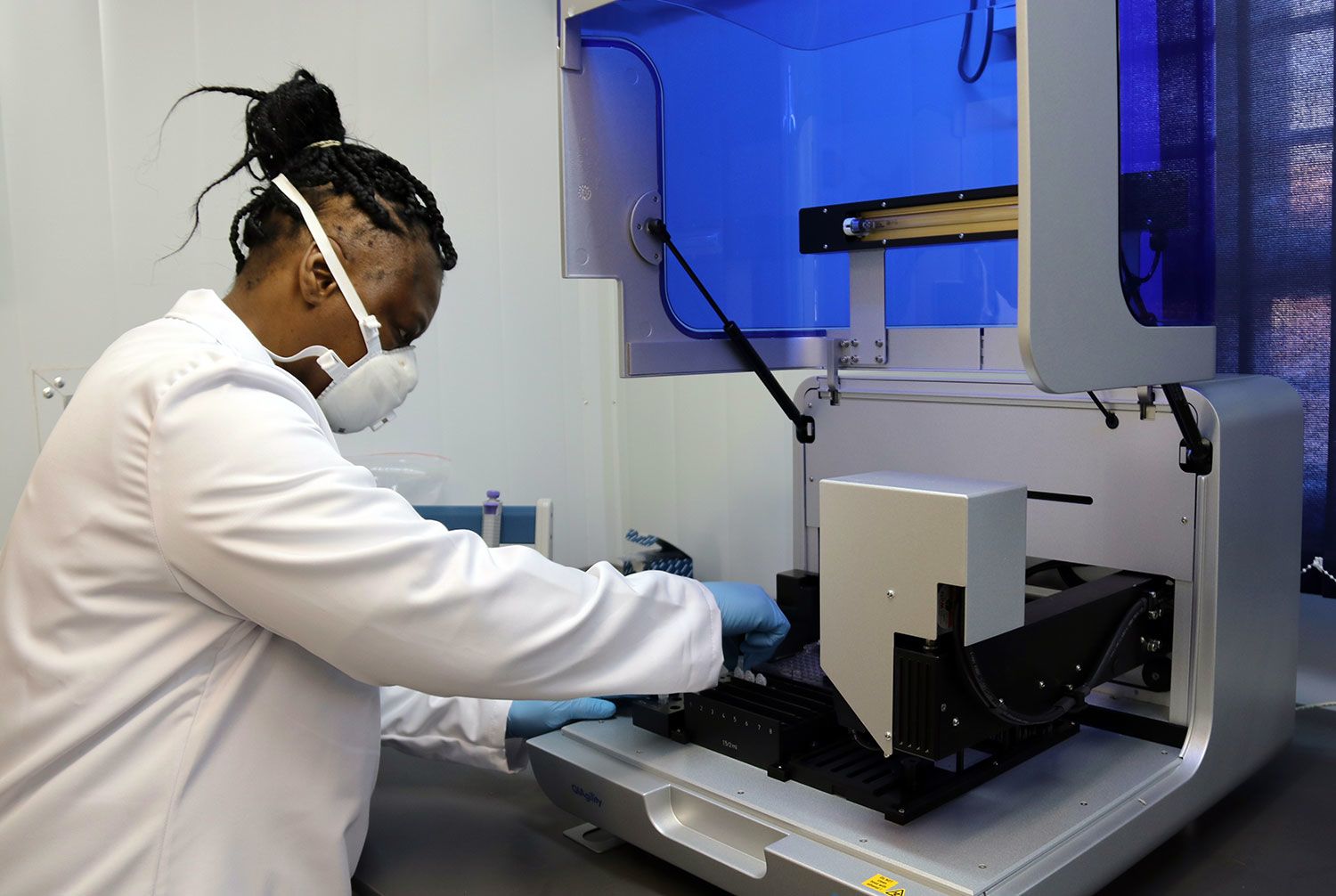
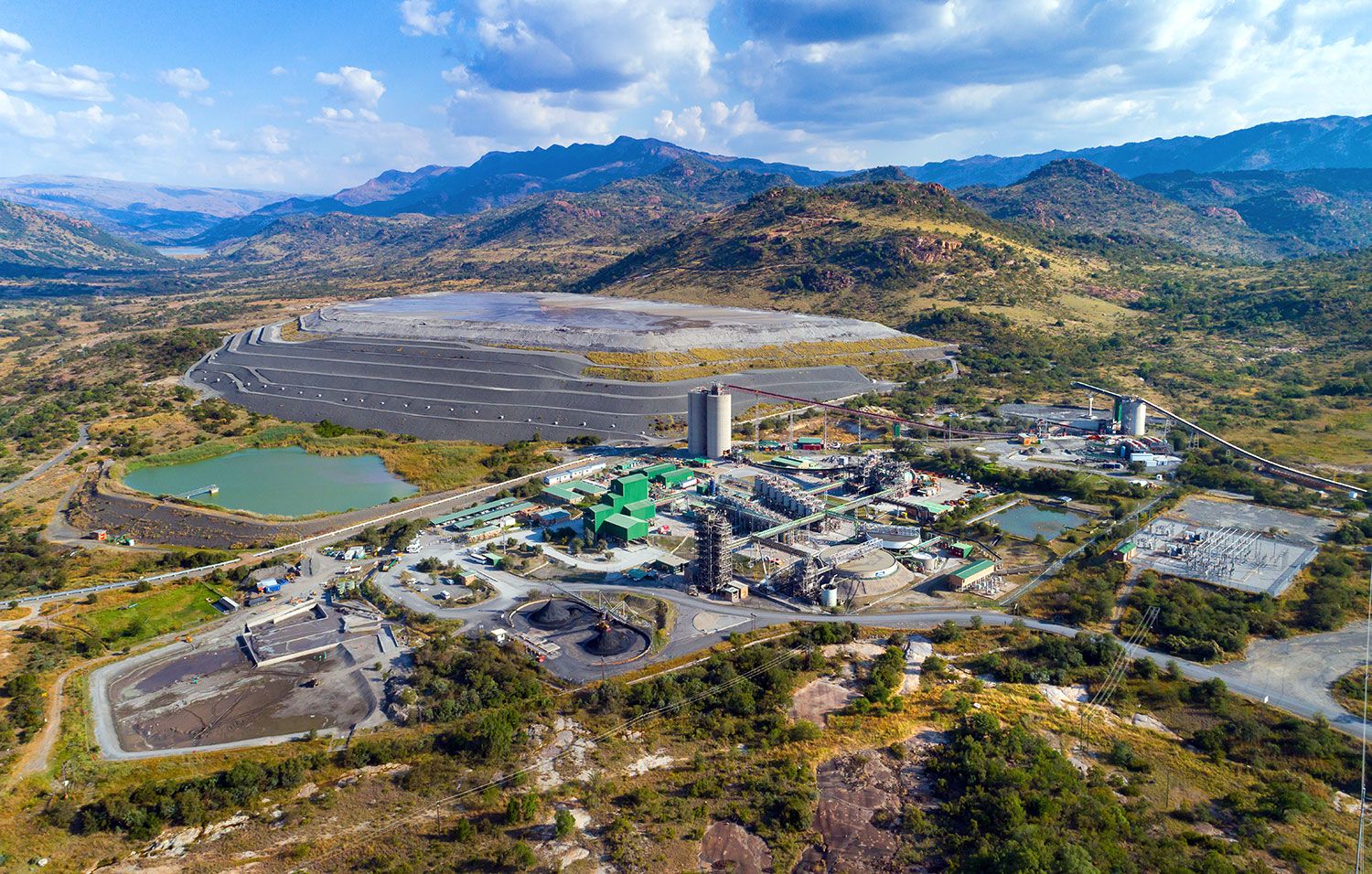
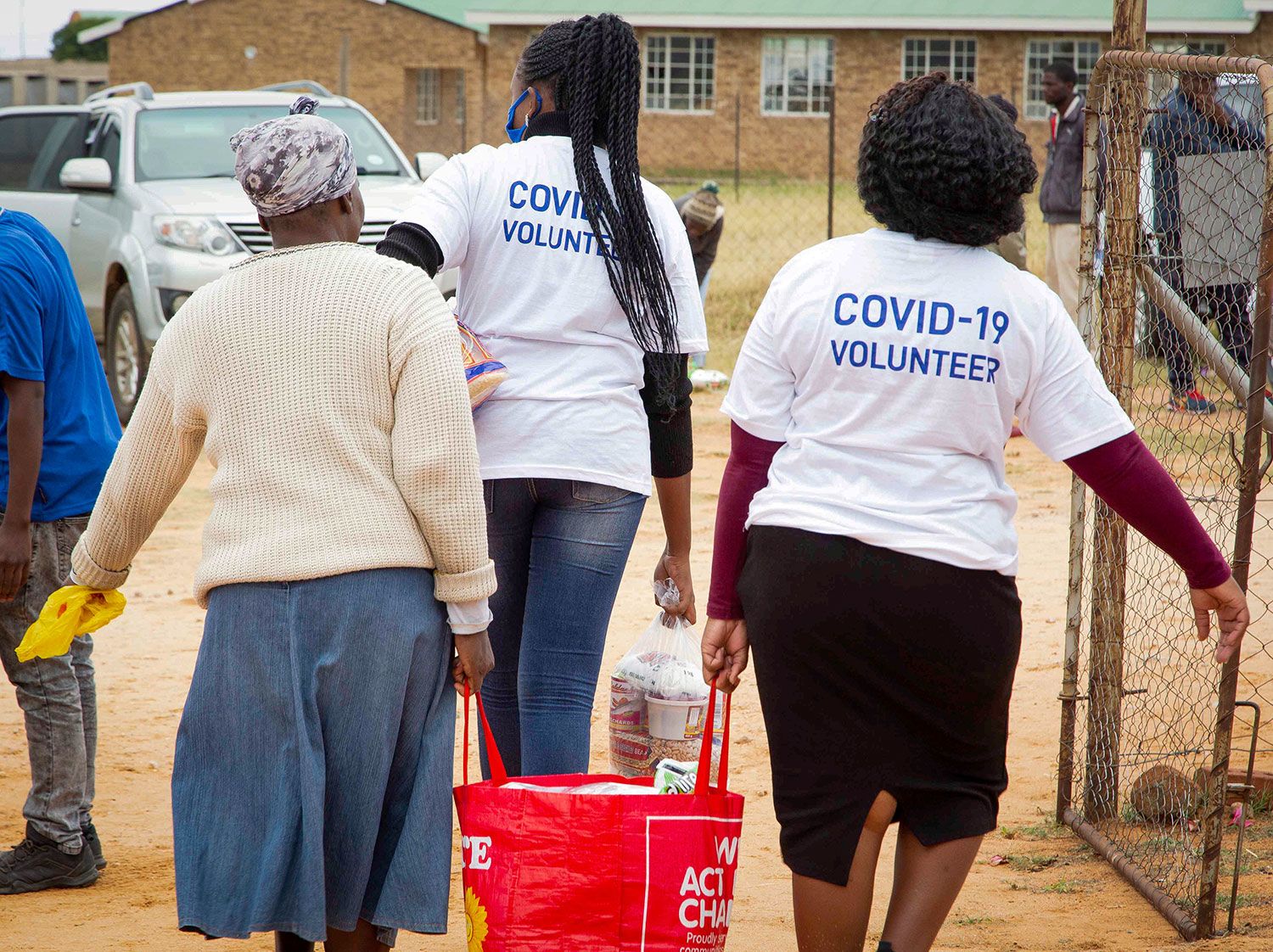
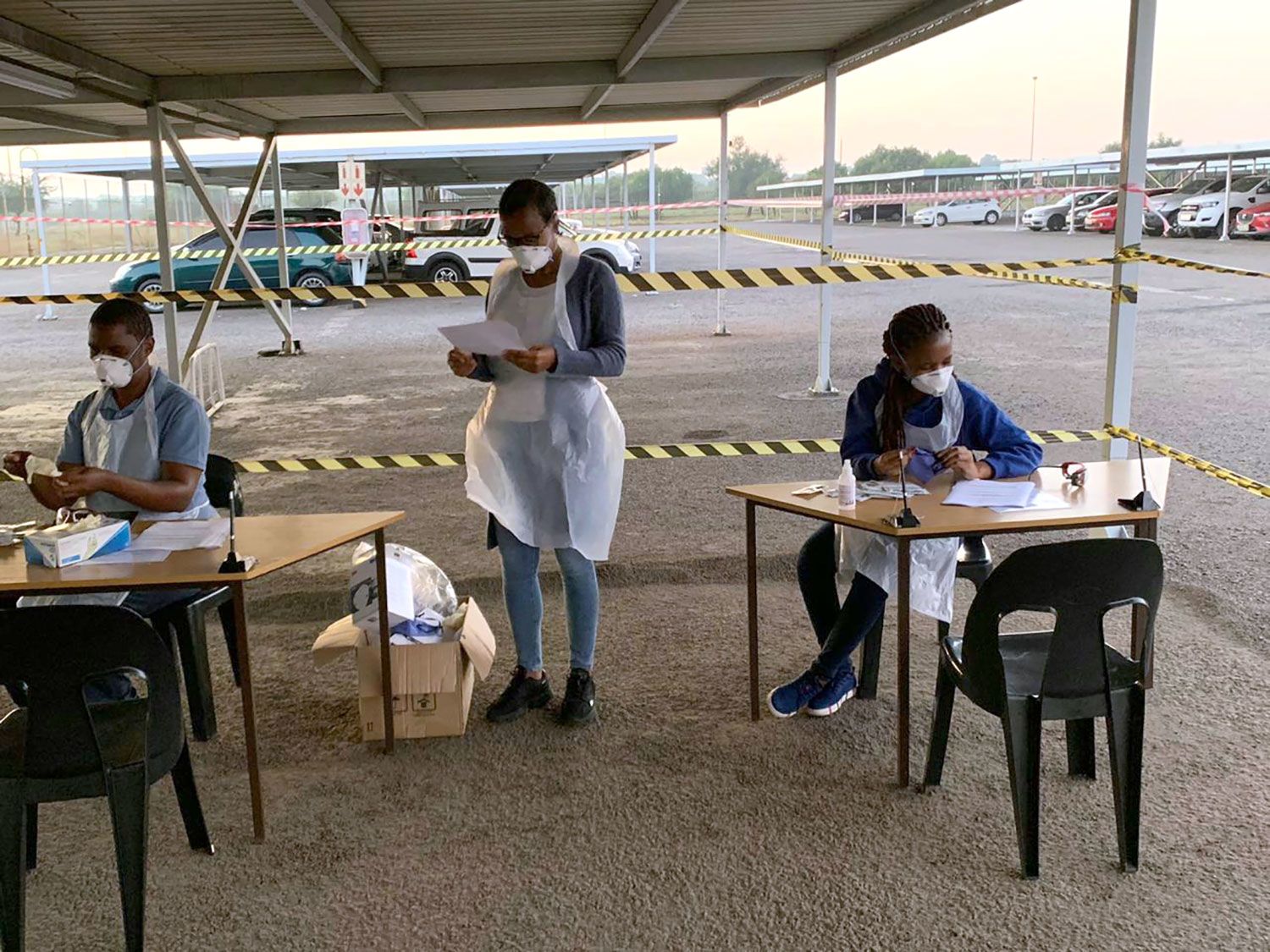
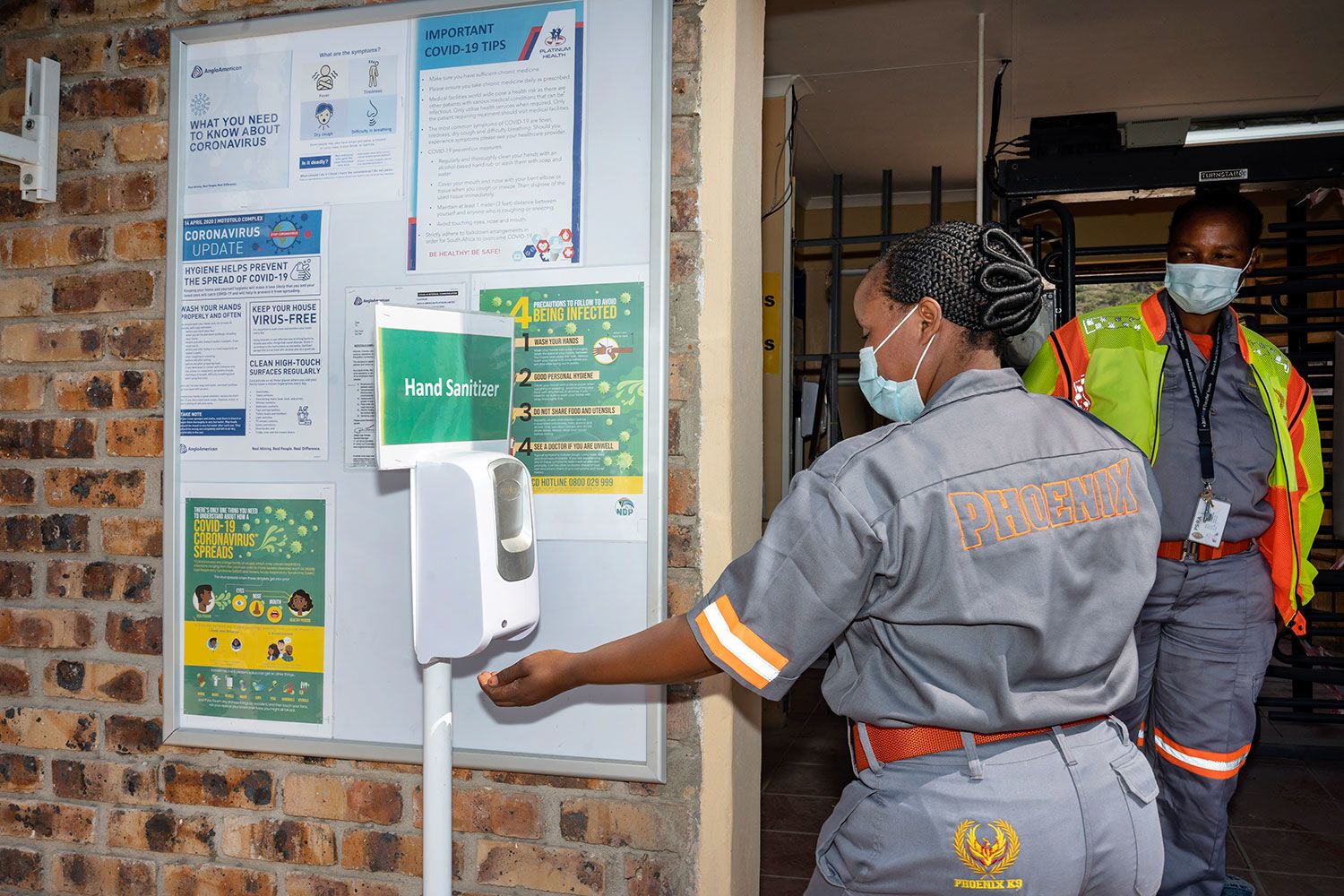
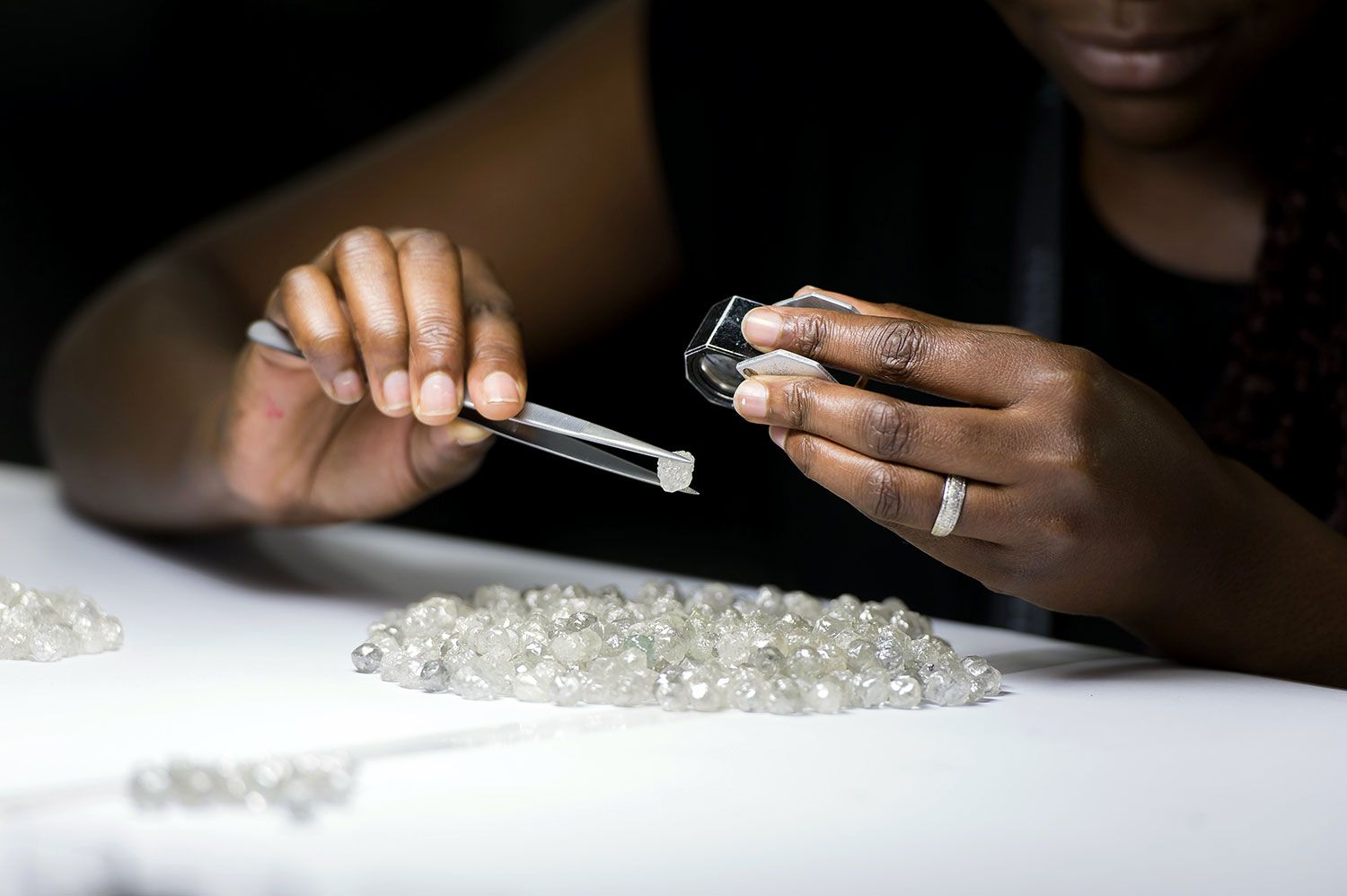












Launching on Women’s Day, this celebration of power runs throughout the month of August. Throughout the month Anglo American, in partnership with City Press and Daily Sun, will be featuring 10 women across the value chain who are Women on the Frontline.
A celebration of power in partnership with

Design by Rudi Louw






